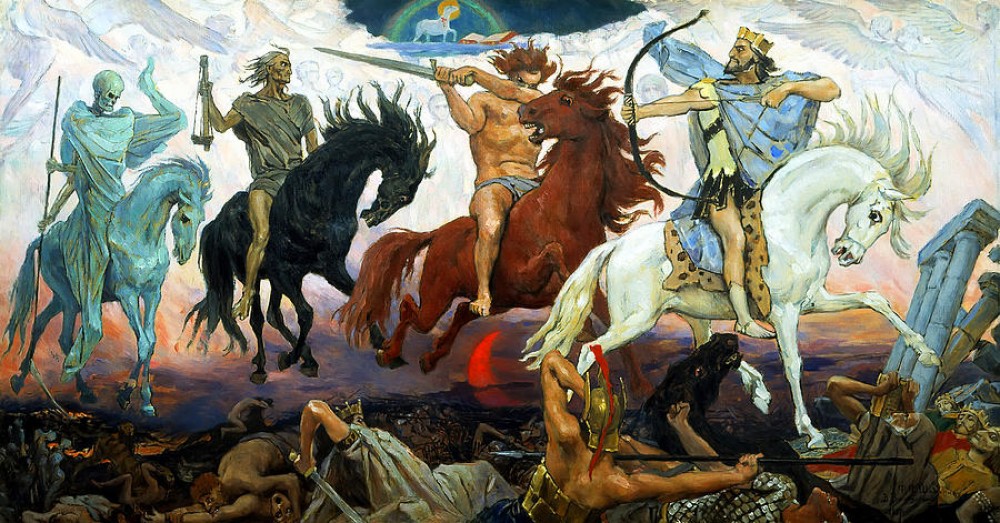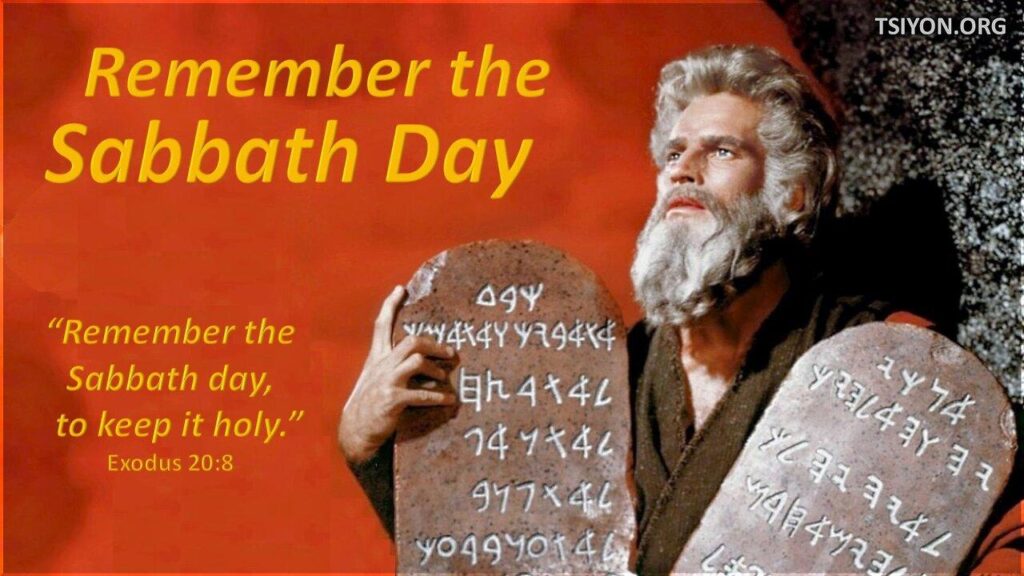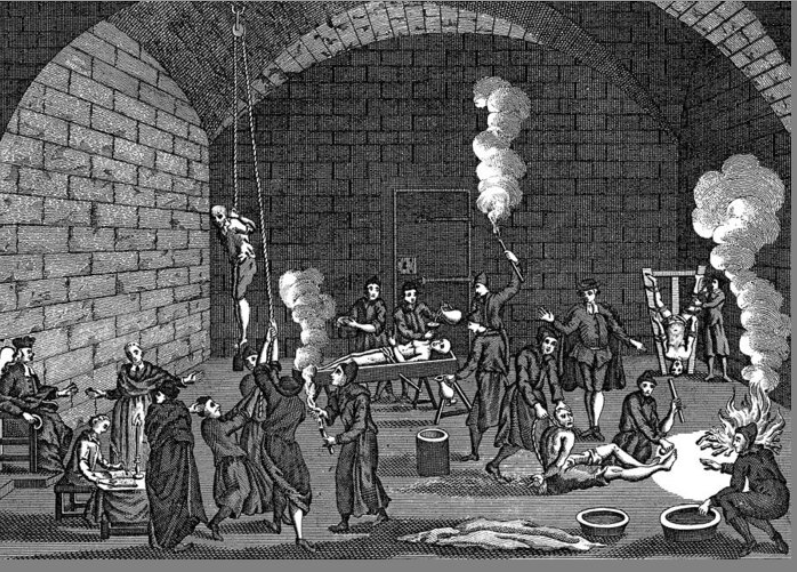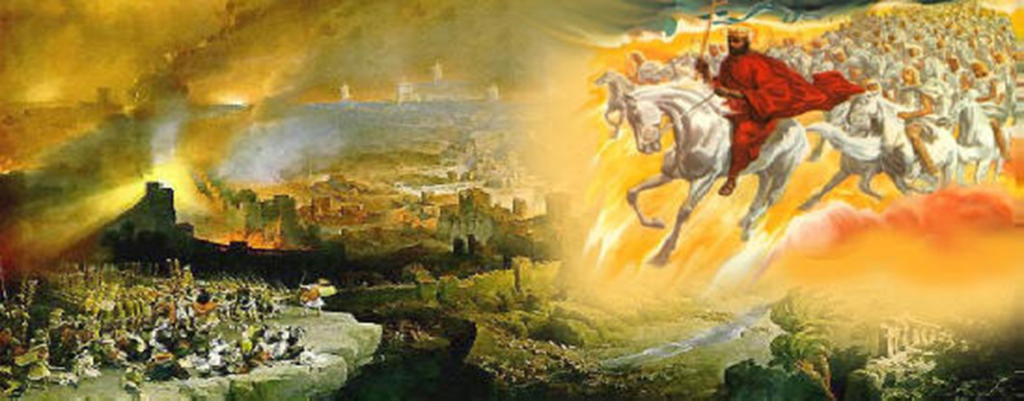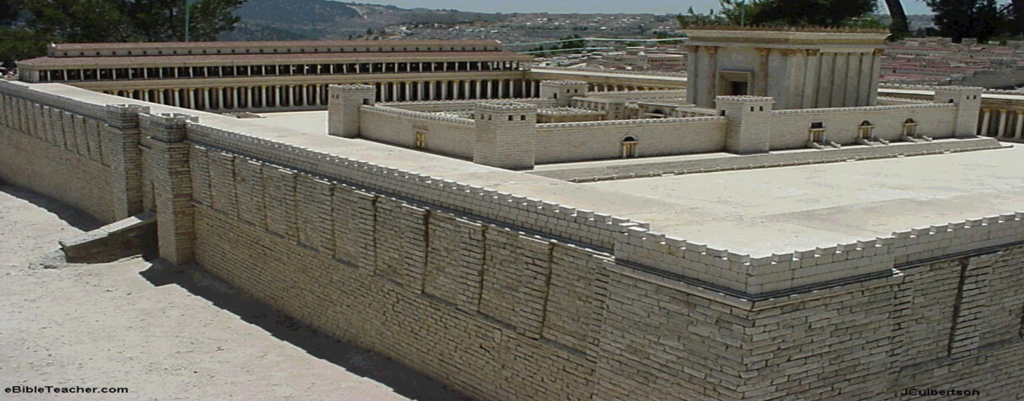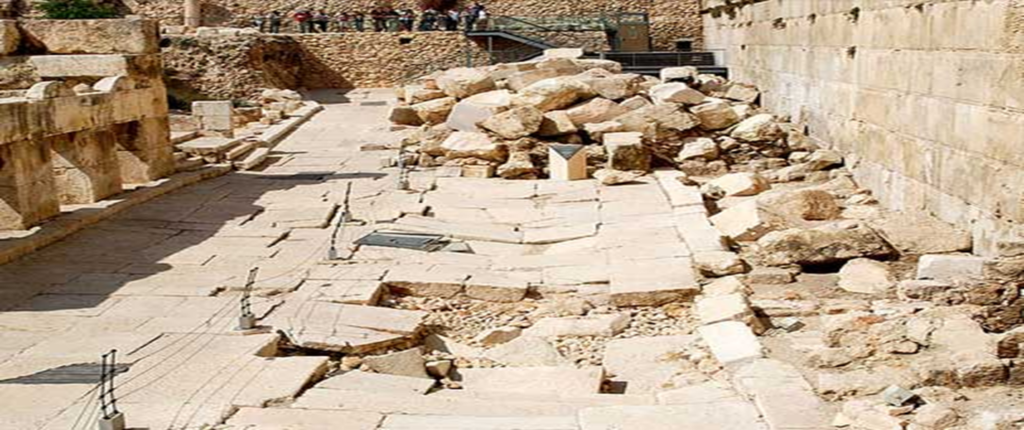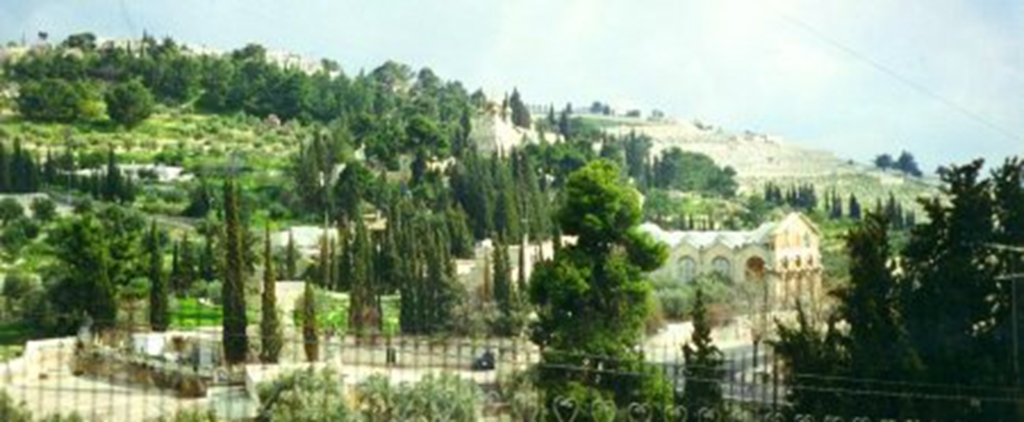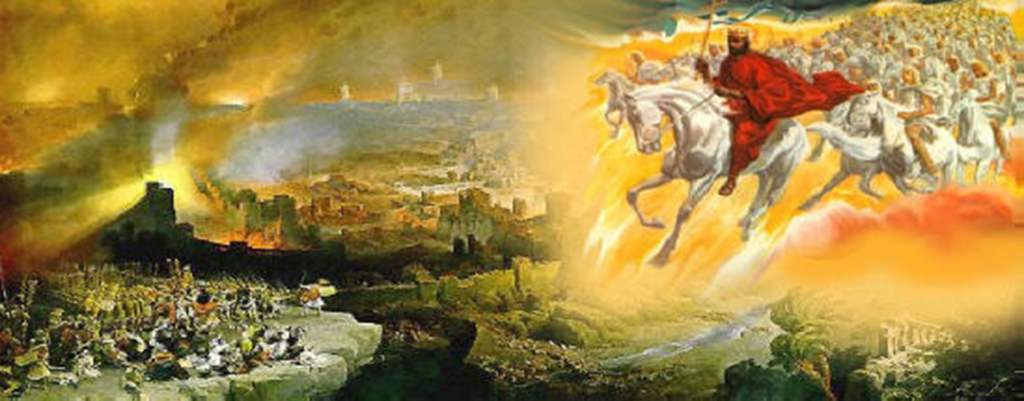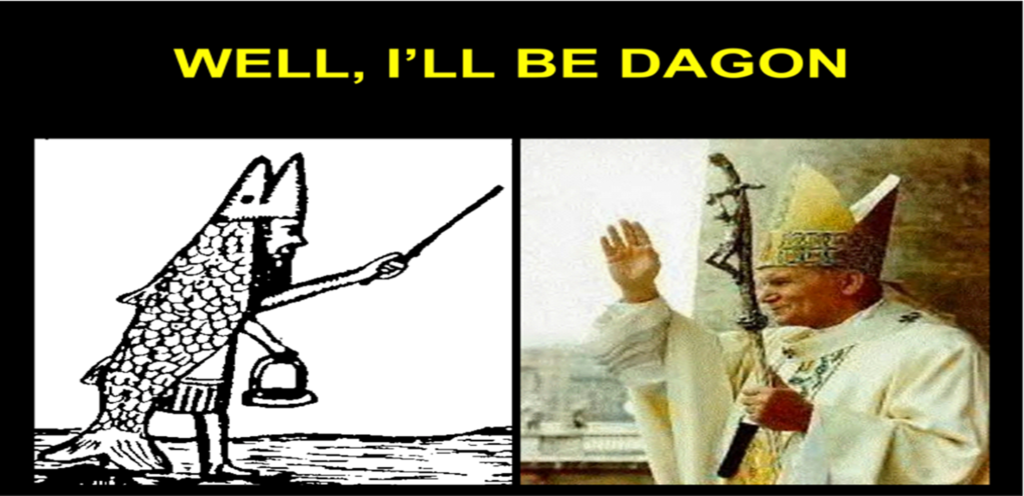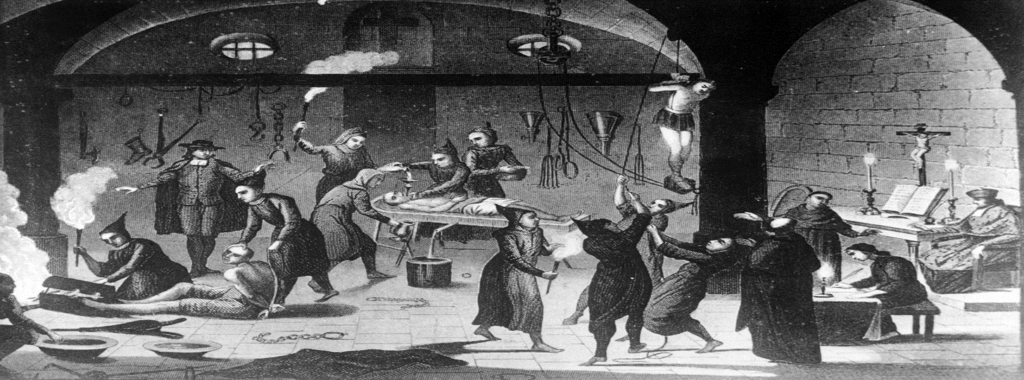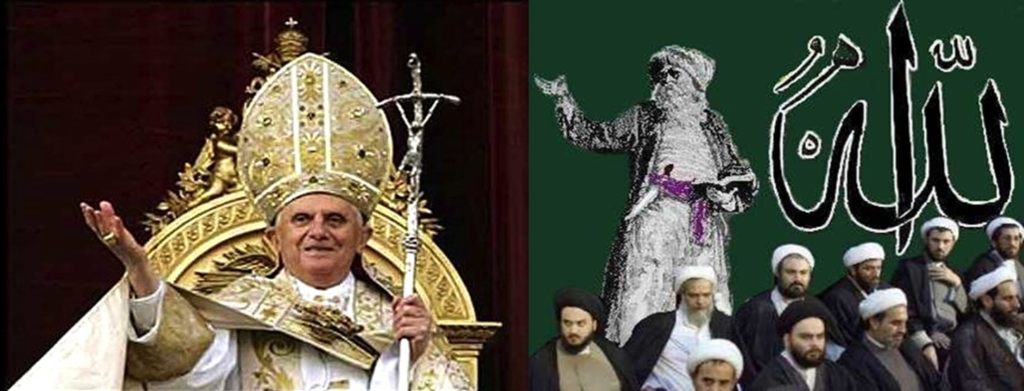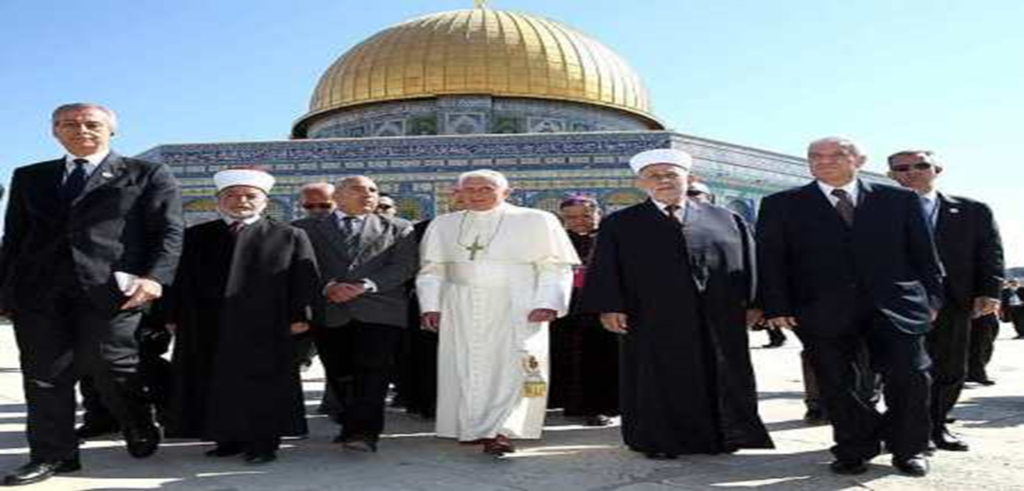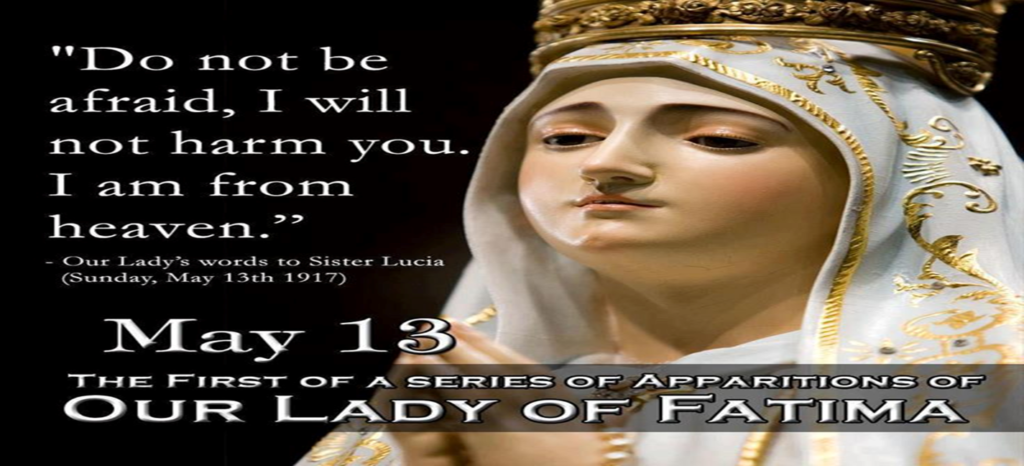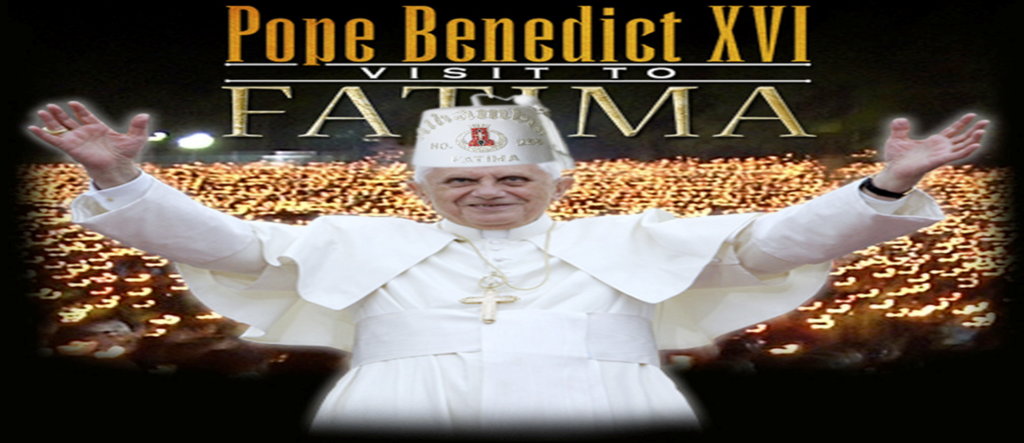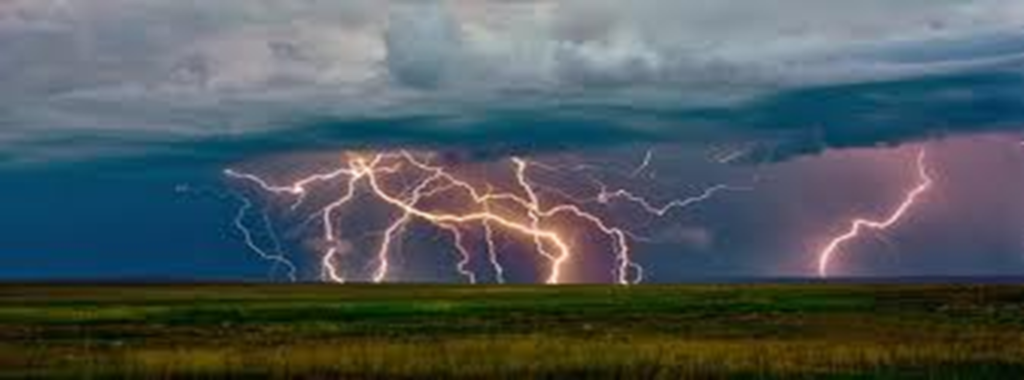
THE FOLLOWING ARE CHRISTIAN REFERENCES ON THE HISTORY OF BELIEVERS KEEPING THE 7TH DAY SABBATH FROM THE 1ST CENTURY THROUGH THE 20TH CENTURY
1st Century Sabbath History
“But pray ye that your flight be not in winter, neither on the Sabbath day.” —Jesus, Matthew 24:20
Institution Of The Sabbath
“Thus the heavens and the earth were finished, and all the host of them. And on the seventh day God ended his work which he made; and he rested on the seventh day from all his work which he had made. And God blessed the seventh day, and sanctified it: because that in it he had rested from all his work which God created and made.” Genesis 2:1-3
Yeshsua
“And he came to Nazareth, where he had been brought up: and, as his custom was, he went into the synagogue on the Sabbath day, and stood up to read.” Luke 4:16
“And, behold, one came and said unto him, Good Master, what good thing shall I do that I may have eternal life? And he said unto him, If thou wilt enter into life, keep the commandments.” Matthew 19:16-17
“But pray ye that your flight be not in winter, neither on the Sabbath day.” Matthew 24:20.
Jesus asked his disciples to pray that in the flight from the doomed city of Jerusalem, they would not have to flee on the Sabbath day. This flight took place in 70 A.D. (40 years after the Cross).
His Followers
“And they returned, and prepared spices and ointments and rested the Sabbath day according to the commandment.” Luke 23:56
Paul
“And Paul, as his manner was, went in unto them, and three Sabbath days reasoned with them out of the Scriptures” Acts 17:2
Paul And Gentiles
“And when the Jews were gone out of the synagogue, the Gentiles besought that these words might be preached to them the next Sabbath. And the next Sabbath, almost the whole city came together to hear the Word of God.” Acts 13:42, 44.
Here we find Gentiles in a Gentile city gathering on the Sabbath. It was not a synagogue meeting in verse 44, for it says almost the whole city came together, verse 42 says they asked to hear the message, the “next Sabbath.”
John
“I was in the Spirit on the Lord’s day.” Rev. 1:10 (Mark 2:28, Isa.58:13, Ex.20:10). Clearly show the Sabbath to be the Lord’s day.
Josephus
“There is no city of the Grecians, nor any of the Barbarians, nor any nation whatsoever, whither our custom of resting on the seventh day hath not come!” M’Clatchie, “Notes and Queries on China and Japan” (edited by Dennys), Vol 4, Nos 7, 8, p.100.
Philo
Declares the seventh day to be a festival, not of this or of that city, but of the universe. M’Clatchie, “Notes and Queries,” Vol. 4, 99
Despite the Anti-Semitism, Greek philosophy, and Gnosticism, which influenced some early Christian communities in Alexandria and Rome, there are records of continual Sabbath-keeping, especially amongst the Greek-speaking churches in the East. In chapter 8 of a 1st-century local church manual from Syria named Didache, the authors of the text encourage new believers to distance themselves from the Jews in this way: “But let not your fasts be with the hypocrites, for they fast on the second and fifth day of the week. Rather, fast on the fourth day and the Preparation Day (Friday).”[1] The term “preparation day” is traditionally used for Friday (Matthew 27:62; Mark 15:42; Luke 23:54; John 19:14, 31, 42) and demonstrates that the Christians in Syria in ca. 100 AD believed in preparing themselves for the Seventh-day Sabbath observance. [1] Didache, chapter 8, translated by Robert and Donaldson, in ANF 1
Polycarp (AD 69 – 155), a disciple of John the Apostle and bishop of Smyrna in the second century, was also described as a Sabbath-keeper. In the letter The Martyrdom of Polycarp by the Smyrnaeans, Polycarp’s disciples wrote the following: “on the day of the preparation, at the hour of dinner, there came out pursuers and horsemen,” later concluding that Polycarp was killed “on the day of the great Sabbath.”[1] The use of these two expressions – “day of the preparation” and “the day of the great Sabbath” – indicates that Christians in Smyrna around 155 AD also observed the Seventh-day Sabbath.[2] [1] The Martyrdom of Polycarp 8: 1 in ANF 1: 60, 61: Polycarp died a martyr when he was stabbed after an attempt to burn him at the stake failed. Polycarp was the disciple of John and is recognised as a saint in both the Roman Catholic and Eastern Orthodox churches. [2] Furthermore, Polycarp is recorded opposing the Roman bishop Anicetus in his plans to elevate Sunday as a day on which the resurrection, the Passover, is to be celebrated. (See Paul Hartog, Polycarp and the New Testament (Tübingen: Mohr Siebeck, 2002), 41-42; See also Williston Walker, R. Norris, D. Lotz, and R. T. Handy, History of the Christian Church (New York: Scribner, 1985), 76-77.
Besides these mainstream Christian groups and leaders who continued to witness the Sabbath observation, there were also branches of Judaistic Christians called “Nazarenes” and “Ebionites” who maintained the observance of the Seventh-day. They are mentioned by Irenaeus (190 AD), Eusebius (320 AD), Epiphanius (380 AD), and Jerome (400 AD).[1]According to these witnesses, Nazarenes date from the time of the Apostles and are known for strictly observing the Old Testament Jewish ceremonies and holidays, which included Passover, the eating of only clean meats, circumcision, the Sabbath, and more.[1] Another Sabbath-keeping group mentioned is the Ebionites, who possessed similar practices as the Nazarenes but downplayed Jesus’ divinity.[2] [1] Irenaeus, Against Heresies, book 1. 26. 2 in ANF 1: 503; Eusebius, Church History and Life of Constantine, book 3. 27, in NPNF (Nicene and Post-Nicene Fathers, P. Schaff ed., reprint Grand Rapids: Eerdmans, 2001) 1: 227-230; Epiphanius, Panarion, 29: 8 in The Panarion of Epiphanius of Salamis, Book I (Section 1-46), Frank Williams, translator (Leiden: E.J. Brill, 1987), 119-152; Jerome, to Augustine, Letter 75, par. 13 in NPNF 1: 482. [1] Nazarenes were perceived as being sort of Unitarians, teaching that [Jesus/Yehoshua] was the Messiah, that he would soon return, that he was the Son of God but not fully divine himself, they kept many Jewish practices but rejected sacrifices and did not eat “unclean meat”. (Epiphanius, 18; 19: 5; 20: 3; 29: 1, 6) Eusebius trace their existence from the time of Paul, and it is possible that it is against such that Paul wrote passages as Gal 4, Rom 14, Col 2. See Ray A. Pritz, Nazarene Jewish Christianity (Leiden, Netherlands: E.J. Brill, 1988), 13. In the Qur‘anic material, the Nasara/Nasrani appear as Christians who keep the Jewish dietary and religious laws (circumcision and Sabbath). Muhammed’s wife’s cousin, Waraka Ibn Warfal, was considered to have been a Nazarene Christian. See Joseph Azzi, The Priest and the Prophet: The Christian Priest WarakaIbn Warfal’s Profound Influence Upon Muhammad, the Prophet of Islam (Los Angeles, CA: Pen Publishers, 2005). [2] For the most recent study on Ebionites, see Gregory C. Finley, “The Ebionites and Jewish Christianity: Examining Heresy and the Attitudes of Church Fathers” PhD Dissertation, Catholic University of America, Washington, D.C., 2009. See also Gerhard Uhlhorn, “Ebionites”, in A Religious Encyclopaedia of Biblical, Historical, Doctrinal, and Practical Theology, vol. 2 (New York: Funk and Wagnalls, 1894), 684-85.
2nd Century+ Sabbath History
“It is certain that the ancient Sabbath did remain and was observed (together with the celebration of the Lord’s day) by the Christians of the East Church, above three hundred years after our Saviour’s death.” – A Learned Treatise of the Sabbath, p. 77
“The primitive Christians had a great veneration for the Sabbath, and spent the day in devotion and sermons. And it is not to be doubted, but they derived this practice from the Apostles themselves, as appears by several scriptures to the purpose.” “Dialogues on the Lord’s Day,” p. 189. London: 1701, By Dr T.H. Morer (A Church of England divine).
“…The Sabbath was a strong tie which united them with the life of the whole people, and in keeping the Sabbath holy they followed not only the example but also the command of Jesus.” “Geschichte des Sonntags,” pp.13, 14
“The primitive Christians did keep the Sabbath of the Jews;…therefore the Christians, for a long time together, did keep their conventions upon the Sabbath, in which some portions of the law were read: and this continued till the time of the Laodicean council.” “The Whole Works” of Jeremy Taylor, Vol. IX,p 416 (R. Heber’s Edition, Vol XII, p. 416).
Early Church “It is certain that the ancient Sabbath did remain and was observed (together with the celebration of the Lord’s day) by the Christians of the East Church, above three hundred years after our Saviour’s death.” “A Learned Treatise of the Sabbath,” p. 77
Note: By the “Lord’s day” here the writer means Sunday and not the true Sabbath,” which the Bible says is the Sabbath. This quotation shows Sunday coming into use in the early centuries soon after the death of the Apostles. Paul the Apostle foretold a great “falling away” from the Truth that would take place soon after his death.
2nd Century Christians “The Gentile Christians observed also the Sabbath,” Gieseler’s “Church History,” Vol.1, ch. 2, par. 30, 93.
2nd, 3rd, 4th Centuries “From the apostles’ time until the council of Laodicea, which was about the year 364, the holy observance of the Jews’ Sabbath continued, as may be proved out of many authors: yea, notwithstanding the decree of the council against it.” “Sunday is a Sabbath.” John Ley, p.163. London: 1640.
Another piece of evidence of continual Christian Sabbath keeping in the mid-second century comes from an apocryphal work, Acts of John, where the Seventh-day Sabbath is mentioned as having been observed by the apostle John as the actual “Lord’s day.”[1] [1] “And on the seventh-day, it being the Lord’s day, he [John] said to them: Now it is time for me also to partake of food.” ANF 8: 561. [brackets supplied]
Further, in the late second century in Egypt, the unknown writer of the apocryphal Gospel of Thomas(AD 180) admonished the Christian believers:“Except ye make the Sabbath a real Sabbath [sabbatize the Sabbath], ye shall not see the Father.” The EgyptianOxyrhynchusPapyruses (AD 200) contain similar thoughts opposing a growing trend among Alexandrian Christians to neglect the Sabbath.[1] [1] Stephen M. Patterson, “The Scholars Version translation of the Gospel of Thomas,” Verse 27 in The Complete Gospels: Annotated Scholars Version (Salem: Polebridge Press; 1994). The Oxyrhynchus Papyri, pt. L, p. 3, Logion 2, verses 4-11 (London: Offices of the Egypt Exploration Fund, 1898).
Another Christian writer of the 2nd century that mentions the importance of the Seventh-day Sabbath is Theophilus of Antioch (AD 130- 185). Considered a saint by Catholic and Orthodox Christians, Theophilus says the Seventh-day Sabbath is a holy day appointed by God at creation and “acknowledged by all men,” even the gentiles.[1] [1] “And on the sixth day God finished His works which He made, and rested on the seventh day from all His works. And God blessed the seventh day, and sanctified it… the seventh day, which all men acknowledge, the most know not that what among the Hebrews is called the “Sabbath” is translated into Greek the “Seventh” (ebdomas), a name which is adopted by every nation, although they know not the reason of the appellation.” (See Theophilus of Antioch, To Autolycus, Book 2, Chapter 12 in ANF 2: 154.
3rd Century Sabbath History
“The seventh-day Sabbath was…solemnised by Christ, the Apostles, and primitive Christians, till the Laodicean Council did in manner quite abolish the observations of it.” —Dissertation on the Lord’s Day, pp. 33, 34
Egypt (Oxyrhynchus Papyrus) (200-250 A.D.)”Except ye make the sabbath a real sabbath (sabbatize the Sabbath,” Greek), ye shall not see the Father.” “The Oxyrhynchus Papyri,” pt,1, p.3, Logion 2, verso 4-11 (London Offices of the Egypt Exploration Fund, 1898).
Early Christians-C 3rd “Thou shalt observe the Sabbath, on account of Him who ceased from His work of creation, but ceased not from His work of providence: it is a rest for meditation of the law, not for idleness of the hands.” “The Anti-Nicene Fathers,” Vol 7,p. 413. From “Constitutions of the Holy Apostles,” a document of the 3rd and 4th Centuries.
Africa (Alexandria) Origen “After the festival of the unceasing sacrifice (the crucifixion) is put the second festival of the Sabbath, and it is fitting for whoever is righteous among the saints to keep also the festival of the Sabbath. There remaineth therefore a sabbatismus, that is, a keeping of the Sabbath, to the people of God (Hebrews 4:9).” Homily on Numbers 23,” par.4, in Migne, “Patrologia Graeca,” Vol. 12, cols. 749, 750.
Palestine to India (Church of the East) As early as A.D. 225, there existed large bishoprics or conferences of the Church of the East (Sabbath-keeping) stretching from Palestine to India. Mingana, “Early Spread of Christianity.” Vol.10, p. 460.
India (Buddhist Controversy, 220 A.D.) The Kushan Dynasty of North India called a famous council of Buddhist priests at Vaisali to bring uniformity among the Buddhist monks on the observance of their weekly Sabbath. Some had been so impressed by the writings of the Old Testament that they had begun to keep holy the Sabbath. Lloyd, “The Creed of Half Japan,” p. 23.
Early Christians: “The seventh-day Sabbath was…solemnised by Christ, the Apostles, and primitive Christians, till the Laodicean Council did in manner quite abolish the observations of it.” “Dissertation on the Lord’s Day,” pp. 33, 34
In the early third century, multiple witnesses continued to urge the importance of the biblical Sabbath. Although influenced by allegorical hermeneutics, Origen of Alexandria (184-254) encourages believers to rest on the literal Seventh-day Sabbath: It is necessary that every saint and just person celebrate the feast of the Sabbath as well. Well, what is the feast of the Sabbath if not that feast of which the apostle says: «So, a sabbath, that is, the observance of the Sabbath, will be left for the people of God? [Heb 4:8] Therefore, leaving behind the Judaic observance of the Sabbath, let us see what sort of observation of the Sabbath there ought to be for the Christian. On the day of the Sabbath, no worldly activity is supposed to be carried out. Thus, if you cease doing secular works and carry out nothing worldly, but make room for spiritual works, if you come together at church, give ear to the divine readings and discussions, think about heavenly things, solicitous for the future, placing the judgment to come before your eyes, not looking to things present and visible but to those which are future and invisible, this is the observance the Christian Sabbath.[1] Interestingly, Origen distinguishes between the Judaic way of keeping the Sabbath, which Jesus himself opposed in the gospels, and a proper way of keeping the Sabbath, which includes ceasing from labour and participation in spiritual activities. The testimony of Origen is significant as he was the most influential Christian theologian of the 3rd century. Many other Christians probably shared his view on the Seventh-day Sabbath in Northern Africa and Asia Minor, where Origen was frequently invited to speak and teach. [1] Origen, Homily on Numbers, chapter 23, par. 4 in PG 12, pp. 749, 750. Translated in Ancient Christian Texts by Thomas A. Scheck and Christopher A. Hall (Downers Grove, IL.: IVP Academic, 2009), 142. [brackets supplied]
The second most influential Christian writer of the 3rd century, Tertullian from Carthage, also confirms the continued importance of the Seventh-day Sabbath. Influenced by the Latin Christian tradition (the church in Carthage was under the jurisdiction of the Roman church), Tertullian initially rejected the Seventh-day Sabbath.[1] However, after becoming acquainted with various Christian groups from Asia Minor, he changed his view and began endorsing the Seventh-day Sabbath. He writes the following: For Christ did not at all rescind the Sabbath; for even in the case before us (Matt. 12:10), he fulfilled the law while interpreting its condition; moreover, he exhibits in a clear light the different kinds of work, while doing what the law allows from the sacredness of the Sabbath, and while imparting to the Sabbath day itself, which from the beginning had been consecrated by the benediction of the Father, an additional sanctity by his own beneficent action. For he furnished to this day divine safeguards.[2] [1] Tertullian, Against the Jews, ch. 4. [2] Tertullian, Against Marcion, book 4, ch. 12; Historian David Brattston confirms that “Tertullian moved more and more towards the rigours of Sabbath-keeping . . . His early Answers to the Jews speaks of the Sabbath as having been a merely temporary provision [however, he] …asserts in his later Against Marcion, “Christ did not at all rescind the Sabbath” and “he did not utterly destroy it”…which denies that Jesus annulled it, although Tertullian still maintained the proper way of observing it to be different from rabbinic Judaism…” David Brattston, Sabbath and Sunday Among the Earliest Christians (Eugene, OR: Wipf and Stock, 2014), 13.
In the early third century, the Church in Rome prescribed a Sabbath fast, which disabled Christians from partaking the communion (and thus having church services) on the Sabbath. Early Christian writer Hippolytus opposes this trend by saying that such treatment of the Seventh-day Sabbath goes against the “Gospel of Christ.” “Even today, some allow themselves the same audacities: they order fasting on the Sabbath of which Christ has not spoken, dishonouring even the Gospel of Christ.”[1] [1] Hippolytus, In Danielem commentarius, 4, 20, 3, transl. in Bacchiocchi, “Anti-Judaism and the Origin of Sunday,” 65; See also Hippolytus advocating worship, communion, baptisms, ordination and other church services on the Seventh-day Sabbath (Gregory Dix, The Treatise on the Apostolic Tradition of St. Hippolytus of Rome, Bishop, and Martyr. London, UK: Alban Press, 1992, p. 30, 32, 43; See also the Ethiopian version of Hippolytus’ Church Orders, canon 22 and 34 in G. Homer (ed. and trans.), The Statutes of the Apostles or Canones Ecclesiastici (Oxford, UK: University Press, 1915
Although often erroneously cited in support of the early Sunday veneration,[1], the extended version of the letter of Ignatius to the Magnesians, dating from the late third century, contains one paragraph that confirms the “observance” of the Sabbath as the day for purely spiritual thoughts and Sunday as the day for congregating in worship: Let us therefore no longer keep the Sabbath after the Jewish manner… but let every one keep the Sabbath after a spiritual manner, rejoicing in meditation on the law, not in relaxation of the body, admiring the workmanship of God… and after the observance of the Sabbath, let every friend of Christ keep the Lord’s Day as a festival.[2] The extended version of the letter of Ignatius testifies that in the 3rd century Asia Minor (where this edition of his letters comes from), Christians kept the Sabbath but not “after the Jewish manner.” The proper way of “observance of the Sabbath” was to spend time in spiritual activities, “admiring the workmanship of God”, but not “in relaxation of the body,” which refers to the rabbinic restrictions on Sabbath bodily activities.[3] [1] See page 4, ft. 13. [2] Ignatius, Letter to Magnesians 9 in ANF 1: 91, 92. [3] For various Jewish ordinances that limited much physical activity besides labour on the Sabbath in ancient Judaism, see Nina L. Collins, Jesus, the Sabbath and the Jewish Debate (New York: Bloomsbury T & T Clark, 2014). See also New Testament instances of Jesus disregarding Pharisaic legalistic interpretations of the Sabbath by plucking wheat to eat on the Sabbath. (Mark 4) The Pharisees saw this as “work.” For Christianity, such a simple activity would not constitute Sabbath-breaking.
In the east, outside the Roman Empire’s borders, Christian Sabbath-keeping was prevalent among the Syrian and Assyrian Churches. Archelaus, bishop of Harran, in his Acts of the Disputation with the Heresiarch Manes, written around AD 270, opposes the idea promulgated by Gnostics and the Roman Christians that Jesus abolished the Seventh-day Sabbath. He states: “Again, as to the assertion that the Sabbath has been abolished, we deny that He has abolished it plainly; for He was Himself also Lord of the Sabbath.”[1] In another writing, Archelaus explains: “it is fitting for whoever is righteous among the saints to keep also the festival of the Sabbath. For there remaineth therefore a sabbatismus, that is, a keeping of the Sabbath, to the people of God (Hebrews 4:9).”[2] [1] Archaleus, Acts of Disputation in ANF 6:217, citing Jesus’s words in Matthew 12:8 and Mark 2:28. [2] Archelaus, Homily on Numbers 23, par. 4 in PG 12: 749-50.
4th Century Sabbath History
“When you are in Rome, do as Rome does.” —Ambrose, the celebrated bishop of Milan, gave rise to this proverb by stating that when he was in Milan, he observed Saturday, but when in Rome, he observed Sunday. (See page 70 in this Online version of Truth Triumphant)
Italy – Milan “Ambrose, the celebrated bishop of Milan, said that when he was in Milan, he observed Saturday, but when in Rome observed Sunday. This gave rise to the proverb, ‘When you are in Rome, do as Rome does.'” Heylyn, “The History of the Sabbath” (1612)
Italy AND EAST-C 4th “It was the practice generally of the Easterne (Eastern) Churches; and some churches of the west…For in the Church of Millaine (Milan),…it seems the Saturday was held in a farre esteeme… Not that the Easterne (Eastern) Churches, or any of the rest which observed that day, were inclined to Iudaisme (Judaism); but that they came together on the Sabbath day, to worship Iesus (Jesus) Christ the Lord of the Sabbath.” “History of the Sabbath” (original spelling retained), Part 2, par. 5, pp.73, 74. London: 1636. Dr. Heylyn.
Orient And Most Of The World “The ancient Christians were very careful in the observance of Saturday, or the seventh day…It is plain that all the Oriental churches, and the greatest part of the world, observed the Sabbath as a festival…Athanasius likewise tells us that they held religious assemblies on the Sabbath, not because they were infected with Judaism, but to worship Jesus, the Lord of the Sabbath. Epiphanius says the same.” “Antiquities of the Christian Church,” Vol.II Book XX, chap. 3, sec.1, 66. 1137,1138.
Abyssinia – Remnants of Philip’s Evangelism. In the last half of that century, St. Ambrose of Milan stated officially that the Abyssinian bishop, Museus, had ‘travelled almost everywhere in the country of the Seres’ (China). For more than seventeen centuries, the Abyssinian Church continued to sanctify Saturday as the holy day of the fourth commandment.” Ambrose, DeMoribus, Brachmanorium Opera Ominia, 1132, found in Migne, Patrologia Latina, Vol.17, pp.1131,1132.
Arabia, Persia, India, China “Mingana proves that in 370 A.D., Abyssinian Christianity (a Sabbath-keeping church) was so popular that its famous director, Musacus, travelled extensively in the East promoting the church in Arabia, Persia, India and China.” “Truth Triumphant,”p.308 (Footnote 27).
Spain – Council Elvira (A.D.305) Canon 26 of the Council of Elvira reveals that the Church of Spainat that time kept Saturday, the seventh day. “As to fasting every Sabbath: Resolved, that the error be corrected of fasting every Sabbath.” This resolution of the council is in direct opposition to the policy the church at Rome had inaugurated, that of commanding Sabbath as a fast day to humiliate it and make it repugnant to the people.
Spain – It is a point of further interest to note that in north-eastern Spainnear the city of Barcelona, there is a city called Sabadell, in a district originally inhabited. By a people called both “Valldenses” and Sabbatati.”
Persia-A.D. 335-375 (40 Years of Persecution Under Shapur II) The popular complaint against the Christians-“They despise our sun god, they have divine services on Saturday, they desecrate the sacred earth by burying their dead in it.” (Truth Triumphant, Online Version p. 261)
Persia-A.D. 335-375 “They despise our sun-god. Did not Zorcaster, the sainted founder of our divine beliefs, institute Sunday one thousand years ago in honour of the sun and supplant the Sabbath of the Old Testament? Yet these Christians have divine services on Saturday.” O’Leary, “The Syriac Church and Fathers,” pp.83, 84.
Council Laodicea – A.D.365 “Canon 16-On Saturday the Gospels and other portions of the Scripture shall be read aloud.” “Canon 29-Christians shall not Judaize and be idle on Saturday, but shall work on that day; but the Lord’s day they shall especially honour, and as being Christians, shall, if possible, do no work on that day.” Hefele’s “Councils,” Vol. 2, b. 6.
Greek Church father Athanasius of Alexandria, famous for his opposition to Arianism at the Nicene council, also expressed honour for the Seventh-day Sabbath. He wrote in AD 320: “On the Sabbath day we gathered together, not being infected with Judaism, for we do not lay hold of false sabbaths, but we come on the Sabbath to worship Jesus, the Lord of the Sabbath…”[1] While Athanasius rejects “false sabbaths” he comments that his congregations worship on the Seventh-day Sabbath. He even calls Jesus the “Lord of the Sabbath,” which would go against the idea advanced by some that Sunday was the “day of the Lord.” [1] Athanasius, Homilia de Semente, Sec. 1 in PG 28:144.
In the 4th century, another Christian leader from eastern Syria, Apaphras from Mosul, approved the practice of Sabbath-keeping, but not to earn salvation. In his thirteenth Demonstration, Apaphras asserts that “Sabbath… was given for the people’s rest, and not for humans alone, but also grazing animals.” [1] Against the Jews, Apaphras argues that God gave the Sabbath for rest, not as a means to earn salvation. Keeping the Sabbath, Apaphras asserts, does not have value if our hearts are full of malice and wickedness and lack charity and love. He concludes that Christians ought to keep the Sabbath for rest, but Sabbath itself saves no one.[2] [1] Adam Lehto (ed. and transl.), “Demonstration 13: On the Sabbath”. The Demonstrations of Aphrahat, the Persian Sage (Piscataway, NJ: Gorgias Press, 2010), 292. [2] Adam Lehto, “Demonstration 13”, 292-304.
Sabbath/Sunday Controversy: While most Eastern Christians in Palestine, Asia Minor, Syria, and Egypt continued keeping the Seventh-day Sabbath, the Western Christians (Rome, France, Spain, Carthage) and Alexandria advocated that the Sabbath rest be transferred to the first day of the week.[1] Trying to harmonise Paganism with Christianity, Emperor Constantine favoured Western Christianity, which had the most similarities with Greek philosophy and pagan customs.[1] He issued a decree in AD 321, favouring the Western rite of Sunday observance. In the decree, Constantine forbade any work on the “Venerable day of the Sun.”[2] Eusebius, bishop of Caesarea and one of Constantine’s most loyal supporters, reports: “All things whatsoever that it was a duty to do on the Sabbath, these we have transferred to the Lord’s Day [Sunday].”[3] [1] See, for example, Roman bishop Sylvester I, Concerning the Instruction of the Clergymen, book 2, chap. 46, in PL 107: 361 (written in AD 310). [1] See Constantine attacking Donatist Christians in Northern Africa at the instigation of the Roman bishop Silvester I; See W. H. C. Frend, The Donatist Church (Oxford, UK: Clarendon Press, 1971), 159-160. [2] See Codex Justinianus, book 3, sect. 12. 3 in Philip Schaff, History of the Christian Church, vol. 3 (New York, NY: Scribner, 1902), 380; Constantine made another step to confirm Sunday by resolving the dispute on Passover/Easter dating during the Council of Nicaea in 325. The council agreed, and “Easter day was fixed on a Sunday immediately following the new moon which was nearest after the vernal equinox.” The practice of Polycarp and many Christians in Minor Asia was to celebrate Easter on the 14th day of Nissan. In urging the observance of this decree on the churches, Constantine assigned the following reason for the decree: “Let us then have nothing in common with the most hostile rabble of the Jews.”(Eusebius, Ecclesiastical History, vol. 3, chapter 18. [3] Eusebius, Commentary on the Psalms (Psalm 92) in PG 23: 1171-72.
Constantine’s Sunday rest decree was limited mainly to the urban areas and did not prohibit resting on the Seventh-day Sabbath. The Sabbath-keeping in Asia Minor and Syria was still practised alongside the mandatory Sunday rest. In AD 364, a local synod convened in Laodicea appears to have attempted to root out the practice of Sabbath observance. Canon 29 of the Synod decision states: “Christians must not judaize by resting on the Sabbath, but must work on that day, rather honouring the Lord’s Day; and, if they can, resting then as Christians. If any shall be found to be Judaizers, let them be anathema from Christ.” [1] [1] The Complete Canons of the Synod of Laodicea, Canon 29 in New Advent Catholic Encyclopedia, Online edition (ed. Kevin Knight), 2007, <www.newadvent.org/fathers/3806.htm>
This decision of the local synod encountered reactions from many bishops in Asia Minor and Syria. Gregory of Nyssa (AD 330-395) attacked the exaltation of Sunday at the expense of the Sabbath, saying: “…With what eyes can you behold Sunday if you desecrate the Sabbath? Don’t you know that these days are brethren? He, who elevates one, disregards the other…”[1] [1] Gregory of Nyssa, De Castigotione (On Reproof) in PG 46: 309, 310.
Athanasius (AD 297-373), Bishop of Alexandria, likewise tells us that even after the council at Laodicea, many Christians held religious assemblies on the Sabbath, not because they were infected with Judaism, “but to worship Jesus, the Lord of the Sabbath.”[2] [2] Athanasius, Homilia de Semente, section 1 in PG 28: 144.
In response to the Sabbath suppression, but mainly out of concern for the preservation of Apostolic practices in Eastern Christianity, the bishops in Asia Minor appear to have crafted an essential early document called The Apostolic Constitutions, which eventually became the basis of Eastern Orthodox canons, among other regulations, this document, with its first known edition written around AD 375, admonishes a special observance of Sabbath rest as well as congregating on Sunday: O Lord Almighty, Thou hast created the world by Christ, and hast appointed the Sabbath in memory thereof, because that day thou hast made us rest from our works, for the meditation upon thy law…. Assemble yourselves every day, morning and evening… but principally on the Sabbath-day and on the day of our Lord’s resurrection, which is the Lord’s day… keep the Sabbath, and the Lord’s day festival; because the former is the memorial of the creation and the latter of the resurrection.[1] [1] Constitutions of the Holy Apostles, Book 7, Section 2; Book 8, Section 4 and 23 in ANF 7: 474, 712.
Not all Christians in Alexandria ceased to worship on the Seventh-day Sabbath. Bishop Timothy I of Alexandria (ca.AD 380-385), the head of what would later become the Coptic Orthodox Church (or the Greek Church of Alexandria), in his Canonical Answers, writes in favour of Sabbath worship and the Eucharist:“…Question 13 – When are man and wife to forbear the conjugal act? Answer. On Saturday, and the Lord’s day, for on those days the spiritual sacrifice is offered.”[1] [1] “The Canonical Answers of Timothy of Alexandria” in NPNF 2, vol. 14: 613).
Sabbath-keeping among the Semi-Arian Christians: During the 4th and 5th centuries, the Anti-Trinitarian Christians were often reported as observing the Seventh-day Sabbath. Describing different Arian beliefs and practices, Socratus Scholasticus wrote: “The Arians, as we have said, held their meetings outside the city. As often therefore as the festival days occurred, Saturday (Sabbath) and Lord’s day, in each week, on which assemblies are usually held in the churches, they congregated within the city gates about the public squares, and say responsive verses adapted to the main heresy.”[1] [1] Socratus, Ecclesiastical History, book 6, chapter 8, in NPNF 2: 144.
Asterius, bishop of Amasa in Pontus and also an Anti-Trinitarian, describes the attitude of many Christians in Asia Minor regarding the Sabbath. He writes: It is beautiful for Christians and the industrious that the team of these two days comes together. I speak of the Sabbath and the Lord’s Day, which time in its course brings around weekly. As mothers and nurses of the church, they gather the people, set over them priests as instructors, and lead both disciples and teachers to have a care for souls.[1] [1] Asterius of Amasea, “Sermon 5: On Divorce” in Sermons, transcribed by Roger Pearse, Ipswich, 2003, <http://www.earlychristianwritings.com/fathers/asterius_05_sermon5.htm>
The Sabbath observance, characteristic of the Greek Christians, was brought from the East to the West by the Semi-Arian Greek missionaries. In the fourth century, the early Semi-Arian missionary Ulfilas (AD 310-383) from Asia Minor introduced Christianity among the Gothic tribes.[1] It is believed that Ulfilas, like most Greek Christians of that time, was a Sabbath-keeper, teaching the Goths to observe Christian practices, including resting on the Seventh-day Sabbath. This would explain the Gothic Sabbath observance. [1] Here is the “Creed of Ulfilas” – not purely Arian but rather appears Semi-Arian. “…I, Ulfila, bishop, and confessor …I believe in one God the Father, unbegotten and invisible, and in his only-begotten son, our Lord and God, the designer and maker of all creation having none other like him (so that one alone among all beings is God the Father, who is also the God of our God); and in one Holy Spirit, the illuminating and sanctifying power . . . being neither God (the Father) nor our God (Christ), but the minister of Christ… subject and obedient in all things to the Son; and the Son, subject and obedient in all things to God who is his Father…” Peter J. Heather and John Matthews, The Goths in the Fourth Century (Liverpool University Press, 1991), 143.
Armenians: Although not adopting Nestorianism, the Armenian Church had loosely detached itself from Byzantine Orthodoxy, mainly on the issue of veneration of icons and the celebration of the Sabbath as a day of rest and worship.[1] Already in the late fourth century, there were reports of Semi-Arians in Armenia who kept the Seventh-day Sabbath. Tamar writes: “…Eustathius was succeeded by Erius, a semi-Arian… he urged a purer morality and a stricter observance of the Sabbath.”[2] [1] Tamar Davis, A General History of the Sabbatarian Churches (Philadelphia: Lindsay and Blakiston, 1851), 18-24. [2] Idem, p. 20.
Ethiopian and Coptic Christians: Sabbath observance was introduced at the earliest stage of Christianity in Egypt and Ethiopia. In the fourth century, Ethiopian bishop Frumentius reported: “And we assemble on Saturday… not that we are infected with Judaism, but to worship Jesus, the Lord of the Sabbath”[1] [1] Davis, pp. 41, 42.
5th Century Sabbath History
“The people of Constantinople, and almost everywhere, assemble together on the Sabbath, as well as on the first day of the week, which custom is never observed at Rome or at Alexandria.” —Socrates, “Ecclesiastical History,” Book 7, chap.19.
The World “For although almost all churches throughout The World celebrated the sacred mysteries (the Lord’s Supper) on the Sabbath of every week, yet the Christians of Alexandria and at Rome, on account of some ancient tradition, refuse to do this.” The footnote which accompanies the foregoing quotation explains the use of the word “Sabbath.” It says: “That is, upon the Saturday. It should be observed that Sunday is never called “the Sabbath’ by the ancient Fathers and historians.” Socrates, “Ecclesiastical History,” Book 5, chap. 22, p. 289.
Constantinople “The people of Constantinople, and almost everywhere, assemble together on the Sabbath, as well as on the first day of the week, which custom is never observed at Rome or at Alexandria.” Sozomen, “Ecclesiastical History,” Book 7, chap. 19.
The World – Augustine, Bishop of Hippo (North Africa) Augustine shows here that the Sabbath was observed in his day “in the greater part of the Christian world,” and his testimony in this respect is all the more valuable because he himself was an earnest and consistent Sunday-keeper. See “Nicene and Post-Nicene Fathers,” 1st Series, Vol.1, pp. 353, 354.
Pope Sylvester (314-335) was the first to order the churches to fast on Saturday, and Pope Innocent (402-417) made it a binding law in the churches that obeyed him (In order to bring the Sabbath into disfavour) “Innocentius did ordain the Saturday or Sabbath to be always fasted.” Dr Peter Heylyn, “History of the Sabbath, Part 2, p. 44.
5th Century Christians – Down even to the fifth century, the observance of the Jewish Sabbath was continued in the Christian church. “Ancient Christianity Exemplified,” Lyman Coleman, ch. 26, sec. 2, p. 527
In Jerome’s day (420 A.D.), the devoutest Christians did ordinary work on Sunday. “Treatise of the Sabbath Day,” by Dr White, Lord Bishop of Ely, p. 219.
France- “Wherefore, except Vespers and Nocturns, there are no public services among them in the day except on Saturday (Sabbath) and Sunday.” John Cassian, A French monk, “Institutes,” Book 3, ch. 2.
Spain (400 A.D.) “Ambrose sanctified the seventh day as the Sabbath (as he himself says). Ambrose had a great influence in Spain, which was also observing the Saturday Sabbath.” Truth Triumphant, p. 68.
Sidonius (Speaking Of King Theodoric Of The Goths, A.D. 454-526) – “It is a fact that it was formerly the custom in the East to keep the Sabbath in the same manner as the Lord’s day and to hold sacred assemblies: while on the other hand, the people of the West, contending for the Lord’s day have neglected the celebration of the Sabbath.” “Apollinaries Sidonli Epistolae,” lib.1, 2; Migne, 57.
Egypt “There are several cities and villages in Egypt where, contrary to the usage established elsewhere, the people meet together on Sabbath evenings, and, although they have dined previously, partake of the mysteries.” Sozomen. “Ecclesiastical History” Book 7, ch. 19
Despite the efforts made in this direction by Emperor Constantine and the edict of Laodicea, Sabbath rest was not abolished as a relic of Judaism. Still, it was preserved among many Eastern Churches. Fifth-century Greek historian, Socrates Scolasticus (AD 420), observes the following: Although almost all churches throughout the world celebrate the sacred mysteries [i.e. the Lord’s Supper] on the Sabbath of every week, yet the Christians of Alexandria and at Rome, on account of some ancient tradition, have ceased to do this. The Egyptians in the neighbourhood of Alexandria, and the inhabitants of Thebes, do hold their religious assemblies on the Sabbath, but do not participate in the mysteries in the manner usual among Christians in general.[1] [1] Socrates, Ecclesiastical History, book 5, chapter 22 in Phillip Schaff and Henry Wace (eds.), NPNF 2: 132.
The division in practices between the East and West is also reported by another fifth-century Greek historian, Sozomen (AD 440): “…The people of Constantinople, and almost everywhere, assemble together on the Sabbath, as well as on the first day of the week, which custom is never observed at Rome or at Alexandria.”[1] [1] Sozomen, Memoirs, book 2, chapter 19 in NPNF 2:391.
Even though many Churches in Alexandria rejected Sabbath observance, numerous Christians in cities and villages in Egypt continued the practice of Sabbath-keeping. Palladius (AD 365-425), a bishop in Bithynia, spent several years in Egypt, sharing the monastic life of the hermits there. Around AD 419, he wrote a history of his experiences in Egypt. The book makes several references to the observance of the Sabbath and Sunday by the monks in the surroundings of Alexandria: Now I spent three years in the monasteries in the neighbourhood of Alexandria with their some two thousand most noble and zealous inhabitants…They allow a guest to remain at leisurefor one week; from then on, he must help in the garden, bakery, or kitchen…They occupy the church on Saturdays and Sundays only.[1] Palladius also mentions Pachomius, who was considered a prophet and was one of the principal founders of monasteries in Egypt. According to Palladius, Pachomius had a vision of an angel who told him how to practice his asceticism. The angel also mentioned partaking of the communion on the Sabbath and Sunday.[2] [1] Palladius, Lausiac History, ch. 7, Robert T. Meyer trans. “Ancient Christian Writers,” no. 24 (Westminster, Md.: The Newman Press, 1965), 40 -43. For Sabbath references, see also pages 49-51, 70-71, 92-95, 130-131.) [2] Palladius, Lausiac History, ch. 32, page 131.
Latin Historian Cassian (d. 435) also reports that the Egyptian monks continue to celebrate both Sabbath and Sunday according to the custom of the Greek Churches: These offices, which we are taught to render to the Lord at separate hours and at intervals of time, with a reminder from the convener, are celebrated continuously throughout the whole day…incessantly practiced by them in their cells…Wherefore, except Vespers and Nocturns, there are no public services among them in the day except on Saturday and Sunday, when they meet together at the third hour [nine o’clock in the morning] for the purpose of Holy Communion.[1] [1] Cassian, Institutes, 3: 2 in New Advent Catholic Encyclopedia, Available Online: <http://www.newadvent.org/fathers/3507.htm> 12/31/07. That there were weekly religious services among the monks of Egypt on the Sabbath, Cassian thus affirms: “But on the day of the Sabbath and on the Lord’s Day they read both lessons from the New Testament.”[1] [1] Cassian, Institutes 2: 6 in Ibid.
Sabbath among the Near-Eastern Churches. In the fifth century, the Nestorian schism further changed the face of the Eastern Christian World, creating a gap between Greek-Orthodox Christians and the Churches of the East. In the year AD 431, the Council of Ephesus deposed Nestorius, bishop of Constantinople, who opposed the Church’s teaching on the human nature of Christ.[1] The Churches that sided with Nestor in this controversy became historically known as the “Churches of the East.”[1] [1] Alexander Schmemann, The Historical Road of Eastern Orthodoxy (New York: Holt, Rinehart and Winston, 1963), 120-142. [1] For an excellent geographical survey on Eastern Churches, see Ronald Roberson, The Eastern Christian Churches (Rome, Italy: Edizione Orientalia Christiana, Istituto Pontifico Orientale, sixth edition, 1996); For a theological commentary on Eastern Churches, see Aziz S. Atiya, A History of Eastern Christianity (London, UK: Methuen and Co., 1968).
Syrian Christians: Nestorius, who eventually found himself deposed and exiled after the Council of Ephesus, found many followers in Syria. The Syrian Nestorians still exist today. New Schaff Herzog Encyclopedia observed: “Nestorians eat no pork and keep the Sabbath as a weekly festival as well as Sunday. They have no auricular confession; they know nothing of purgatory. Their priests are allowed to marry.”[1] [1] Johannes Kunze, “Nestorians” in New Schaff Herzog Encyclopedia (Grand Rapids, MI: Baker House 1953), 120-123.
Towards the end of the fifth century, nine Monophysite priests from Syria introduced monasticism into Egypt and Ethiopia. Perhaps due to these nine monks, the Ethiopian Orthodox Church, the Coptic Church of Egypt, and smaller churches in Syria, Turkey, and Armenia have remained non-Chalcedonian. Ethiopians also used the Ethiopian version of Hippolytus’ Church Orders, which prescribes many church services, baptisms, etc., on the Seventh-day Sabbath. And those who desire to be baptized shall fast on Friday, and the bishop shall assemble all those who shall be baptized on Sabbath into one place, and shall command all of them (to make) prayer and prostration; and when he has laid his hand upon them, let him exorcise the unclean spirit that he may flee away from them and not enter into them again.. . . and they shall read to them the Scriptures, and exhort them …first pray over the water . . . And they shall baptise the children first . . . And on the Sabbath and on the first day of the week, if it be possible, the bishop himself with his own hand shall deliver to all the people while the deacons break the bread.” (Canon 34) “The bishop shall be ordained as we have already spoken; one who has been chosen by all the people together, with the presbyters and deacons on the day of the Sabbath…” (Canon 22)[1] [1] G. Homer, ed. and trans. “The Statutes of the Apostles or Canones Ecclesiastici” in Journal of Theological Studies 16 (Oxford, UK: Clarendon Press, 1915), 334.
6th Century Sabbath History
Scottish Church “In this latter instance, they seemed to have followed a custom of which we find traces in the early monastic church of Ireland by which they held Saturday to be the Sabbath on which they rested from all their labours.” W.T. Skene, “Adamnan Llife of St. Columbs” 1874, p.96.
Scotland, Ireland “We seem to see here an allusion to the custom, observed in the early monastic Church of Ireland, of keeping the day of rest on Saturday, or the Sabbath.” “History of the Catholic Church in Scotland,” Vol.1, p. 86, by Catholic historian Bellesheim.
Scotland – Columba “Having continued his labours in Scotland thirty-four years, he clearly and openly foretold his death, and on Saturday, the month of June, said to his disciple Diermit: “This day is called the Sabbath, that is the rest day, and such will it truly be to me; for it will put an end to my labours.'” “Butler’s Lives of the Saints,” Vol.1, A.D. 597, art. “St. Columba” p. 762
Columba (Re Dr Butler’s Description Of His Death) The editor of the best biography of Columba says in a footnote: “Our Saturday. The custom to call The Lord’s day Sabbath did not commence until a thousand years later.” Adamnan’s “Life of Columba” (Dublin, 1857), p. 230
Latin Historian Sidonius Appolinarus (AD 530), in his Epistolae, alsobriefly mentions Sabbath-keeping among the Goths. The following excerpt comes from the editors of the Patrologia Latina commenting on Sidonius’ statement. It is a fact that formerly those who dwelt in the east were accustomed as a church to sanctify the Sabbath in the same manner as the Lord’s day and to hold sacred assemblies; wherefore Asterius, bishop of Amasia in Pontus, in a homily on incompatibility called Sabbath and Sunday a beautiful span, and Gregory of Nyssa in a certain sermon calls these days brethren and therefore censures the luxury and the Sabbatarian pleasures; while on the other hand, the people of the west, contending for the Lord’s day, have neglected the celebration of the Sabbath, as being peculiar to the Jews… It is, therefore, possible for the Goths to have thought, as pupils of the discipline of the Greeks, that they should sanctify the Sabbath after the manner of the Greeks. [1] [1] Jean-Paul Migne’s comment on Sidonius Apollinaris, Epistolae, book 1, letter 2 in PL 58: 448, translated in Benjamin G. Wilkinson, Truth Triumphant: The Church in the Wilderness (Rapidan, VI.: Hartland Publications, 1995), 136-37.
At the end of the 6th century, due to Ostrogoth rule in Italy, the presence of the Sabbath-keeping Christians is recorded even around Rome by the Roman pontiff Gregory I (540-604), who opposed the Sabbath-keepers, calling them ‘pre-cursors of Antichrist’: It has come to my ears that certain men of perverse spirit have sown among you some things that are wrong and opposed to the holy faith, so as to forbid any work being done on the Sabbath day. What else can I call these but preachers of Antichrist?”[1] [1] Gregory I, Registrum Epistolarum, book 13, letter 1 in New Advent Catholic Encyclopedia, Available Online: <http://www.newadvent.org/fathers/3602.htm> 12/31/07; Roman Catholics believed that, as Christ was Jewish, so Antichrist must be a false Jewish messiah that would appear before the end of the world to deceive the Jews. As such, he would naturally keep the Jewish Sabbath. Hence, for Gregory, those who support the Sabbath holy were, in effect, the “precursors of the Antichrist.”
Many Eastern Christians in Constantinople, Asia Minor, Syria, and even Egypt did not replace Sabbath with Sunday but kept Sabbath in admiration for worship and abstinence from secular work. This practice of the Greek churches was so pervasive that it was even brought to the West via the Gothic tribes. In the British Isles, the Sabbath was also observed by Celtic Christians who early accepted the gospel from the Greek or Galatian missionaries. [1] [1] James C. Moffatt, D. D., The Church in Scotland (Philadelphia: 1882), 140. Wilkinson, 120-134.
In AD 553, Jacob Baradeaus, a follower of Eutachus, rejected the council of Chalcedon and founded the Jacobites in Syria. The Jacobites were also Sabbath-keepers, but they differed from the Nestorians in two ways: first, they used unleavened bread in their Eucharist service while the Nestorians kept the leavening agent, and second, they believed Christ had only a human nature – no divine soul.[1] [1] Kunze, “Nestorians”, 122.
The Syrian Sabbath-keeping Christians cherished an extreme missionary spirit. They spread towards Persia and China, where they existed for over 1,000 years. Researcher Alphons Mingana wrote: “There existed large Sabbath-keeping bishoprics or conferences of the Church of the East stretching from Palestine to India.” [1] Syrian Sabbath-keeping Christianity flourished under the Mongols and was even accepted among many high-ranking Mongol officials during Mongolian rule. [2] [1] Alphonse Mingana, Early Spread of Christianity in Central Asia and the Far East, vol. 10, (Oxford: University Press, 1925), 460. [2] It is claimed that in the 13th century, Marco Polo and other travellers to China and Mongolia came across numerous Sabbath-keeping Syrian Christians, which included Nestorians and Jacobites. Sabbath keeping subsisted in China and Mongolia until the end of the 14th century, when Tamerlane, the Turk conqueror, made sure that all Christianity disappeared in his kingdom. See Wilkinson, Truth Triumphant, 337-339. Manuel Komroff, The Travels of Marco Polo (New York, NY: Liveright, 1930), 29.
7th Century Sabbath History
Scotland and Ireland
Professor James C. Moffatt, D.D., Professor of Church History at Princeton, says: It seems to have been customary in the Celtic churches of early times, in Ireland as well as Scotland, to keep Saturday, the Jewish Sabbath, as a day of rest from labour. They obeyed the fourth commandment literally on the seventh day of the week.” “The Church in Scotland,” p.140.
Scotland and Ireland
“The Celts used a Latin Bible unlike the Vulgate (R.C.) and kept Saturday as a day of rest, with special religious services on Sunday.” Flick, “The Rise of Medieval Church,” p. 237
Rome
Gregory I (A.D. 590-640) wrote against “Roman citizens (who) forbid any work being done on the Sabbath day.” “Nicene and Post- Nicene Fathers,” Second Series, Vol, XIII, p.13, epist. 1
Rome (Pope Gregory I, A.D.590 TO 604)
“Gregory, bishop by the grace of God to his well-beloved sons, the Roman citizens: It has come to me that certain men of perverse spirit have disseminated among you things depraved and opposed to the holy faith, so that they forbid anything to be done on the day of the Sabbath. What shall I call them except preachers of anti-Christ?” Epistles, b.13:1
Rome (Pope Gregory I)
Declared that when anti-Christ should come he would keep Saturday as the Sabbath. “Epistles of Gregory I, “b 13, epist.1. found in “Nicene and Post-Nicene Fathers.”
“Moreover, this same Pope Gregory had issued an official pronouncement against a section of the city of Rome itself because the Christian believers there rested and worshipped on the Sabbath.” Same reference.
Isidor of Seville (d. AD 636) records how the Visigoths lost the city of Ceuta because they would not fight on the Sabbath. Knowing this, the Byzantines attacked them on the Sabbath-day, annihilating the Visigoth garrison in Africa.[1] [1] See Guido Donini and Gordon B. Ford (transl. ed.), Isidore of Sevilleʼs History of the Goths, Vandals, and Suevi (Leiden, Netherlands: Brill, 1970), 22.
8th Century Sabbath History
Council of Friuli, Italy, A.D. 791 (Canon 13)
“We command all Christians to observe the Lord’s day to be held not in honour of the past Sabbath, but on account of that holy night of the first day of the week called the Lord’s day. When speaking of that Sabbath which the Jews observe, the last day of the week, and which also our peasants observe…” Mansi, 13, 851
Persia and Mesopotamia
“The hills of Persia and the valleys of the Tigris and Euphrates reechoed their songs of praise. They reaped their harvests and paid their tithes. They repaired to their churches on the Sabbath day for the worship of God.” “Realencyclopädie für protestantische und kirche,” art. “Nestorianer”; also Yule, “The Book of Ser Marco Polo,” Vol. 2, p.409.
India, China, Persia, etc.
“Widespread and enduring was the observance of the seventh-day Sabbath among the believers of the Church of the East and the St. Thomas Christians of India, who never were connected with Rome. It was maintained among those bodies which broke off from Rome after the Council of Chalcedon, namely, the Abyssinians, the Jacobites, the Maronites, and the Armenians,” Schaff-Herzog, The New Encyclopedia of Religious Knowledge,” art. “Nestorians”; also Real encyclopaedie fur Protestantische Theologie und Kirche, art. “Nestorianer.”
Council Of Liftinae, Belgium – A.D.745 (Attended By Boniface)
“The third allocution of this council warns against the observance of the Sabbath, referring to the decree of the council of Laodicea.” Dr Hefele, Counciliengfesch, 3, 512, sec. 362
China – A.D.781
In A.D. 781, the famous China Monument was inscribed in marble to tell of the growth of Christianity in China at that time. The inscription, consisting of 763 words, was unearthed in 1625 near the city of Chang’an and now stands in the “Forest of Tablets,” Chang’an. The following extract from the stone shows that the Sabbath was observed:
“On the seventh day, we offer sacrifices, after having purified our hearts and received absolution for our sins. This religion, so perfect and so excellent, is difficult to name, but it enlightens darkness by its brilliant precepts.” Christianity in China, M. I’Abbe Huc, Vol. I, ch.2, pp. 48, 49
In 1625, Jesuit missionaries in China discovered an ancient Chinese monument that reported the existence of a statue that witnessed the presence of the Seventh-day Sabbath-keeping Christian Church of the East from millennia before. The monument, dating from 781 and written in Syriac and Chinese, described the welcome and acceptance of the Christian religion by the emperor Tae-Tsung (d. 649). One of the passages reads: “On the Seventh-day we offer sacrifices after having purified our hearts, and received absolution from our sins. This religion, so perfect and so excellent, is difficult to name, but it enlightens darkness by its brilliant precepts.”[1] [1] Paul Wong, “The Seventh-day Sabbath Movement in China” in The Sabbath Sentinel, Gillette, WY: Bible Sabbath Association 52, no. 5 (September-October, 2000), 7; Available Online: http://biblesabbath.org/tss/485/tss_485.pdf
By 728 AD, at the Council of Manazkert, Armenians consented with the Eastern Orthodox Church that “Saturday, as well as Sunday, is made a day of feasting and synaxis.”[1] The Armenians of today still celebrate Eucharist on Sabbath and Sunday according to the Apostolic Constitution.[2] [1] Kenneth Strand, Sabbath and Sunday in Scripture and History (Washington: Review and Herald, 1982), 162. [2] Malachia Ormanian, The Church of Armenia (New York: St. Vartan Press, 1988), 166.
9th Century Sabbath History
Bulgaria
“Bulgarian the early season of its evangelization had been taught that no work should be performed on the Sabbath.” Responsa Nicolai Papae I and Con-Consulta Bulllllgarorum, Responsum 10, found in Mansi, Sacrorum Concilorum Nova et Amplissima Colectio, Vol. 15; p. 406; also Hefele, Conciliengeschicte, Vol.4, sec. 478
(Pope Nicholas I, in answer to a letter from Bogaris, ruling prince of Bulgaria.) “Ques. 6-Bathing is allowed on Sunday. Ques. 10-One is to cease from work on Sunday, but not also on the Sabbath.” Hefele, 4,346-352, sec. 478 The Bulgarians had been accustomed to rest on the Sabbath. Pope Nicholas writes against this practice.
Constantinople
(Photius, Patriarch of Constantinople, in a counter-synod that deposed Nicolas, thus accused the Papacy). Against the canons, they induced the Bulgarians to fast on the Sabbath.” Photius, von Kard, Hergenrother, 1, 643
Note: The Papacy tried to bring the seventh-day Sabbath into disrepute by insisting that all should fast on that day. In this manner, she sought to turn people towards Sunday, the first day, the day that Rome had adopted.
Athingians
Cardinal Hergenrother says that they stood in intimate relation with Emperor Michael II (821-829) and testifies that they observed the Sabbath. Kirchengeschichte, 1, 527
India, Abyssinia
“Widespread and enduring was the observance of the seventh-day Sabbath among the believers of the Church of the East and the St. Thomas Christians of India. It was also maintained by the Abyssinians.
Bulgaria
“Pope Nicholas I, in the ninth century, sent the ruling prince of Bulgaria a long document saying that one is to cease from work on Sunday, but not on the Sabbath. The head of the Greek Church, offended at the interference of the Papacy, declared the Pope excommunicated.” Truth Triumphant, p. 223
Sabbath-keeping in the Balkans: One of the issues of Byzantine Christianity was also a growing rivalry between the Roman bishop and the patriarch in Constantinople. In the early 800s, the Sabbath issue arose in the Balkans, a territory claimed by both patriarch from Constantinople and the Roman Bishop. In the ninth century, Nicholas I, bishop of Rome, sent the ruling prince of Bulgaria a long document demanding that one cease work on Sunday, but not on the Sabbath. Pope Nicholas I also gave a series of precepts and rules concerning the Sabbath, as for example: “Bathing is allowed on Sunday… One is to cease from work on Sunday, but not on the Sabbath.”[1] The pope continues, saying, “Because you observe the Sabbath with the Jews and the Lord’s Day with us, you seem to imitate with such observance the sect of Nazarenes.”[2] In Constantinople, Photus, Patriarch of Constantinople and the head of the Greek Church, was offended at the interference of the Pope and deposed Nicolas in a counter-synod, also declaring the Pope excommunicated. One of the main charges against the Romans was: “Against the canons, they induce the Bulgarians to fast on the Sabbath.”[3] [1] Nicolai Papa I, “Consulta Bulgarorum”, Responsum 10, found in Giovanni D. Mansi, Sacrorum Conciliorum Nova et Amplissima Colectio, Vol. 15 (Paris: H. Welter, 1920), 406. [2] PL 145: 506; see also Joseph Hergenroether, Photius, vol. 1, (Regensburg: G. J. Manz, 1869), 746. [3] Hergenrother, 643, see also Karl Joseph von Hefele, Conciliengeschichte, vol. 4, (Freiburg im Breisgau: Herder, 1877), 346-352, sec. 478.
10th Century Sabbath History
Scotland
“They worked on Sunday, but kept Saturday in a Sabbatical manner.” A History of Scotland from the Roman Occupation, Vol. I, p.96. Andrew Lang
Church Of The East – Kurdistan
“The Nestorians eat no pork and keep the Sabbath. They believe in neither auricular confession nor purgatory.” Schaff-Herzog, “The New Encyclopaedia of Religious Knowledge,” art. “Nestorians.”
Waldenses
“And because they observed no other day of rest but the Sabbath days, they called them Insabathas, as much as to say, as they observed no Sabbath.” Luther’s “Fore-Runners” (original spelling), PP. 7, 8
Roman Catholic writers try to evade the apostolic origin of the Waldenses, to make it appear that the Roman is the only apostolic church, and that all others are later novelties. And for this reason, they try to make out that the Waldenses originated with Peter Waldo of the twelfth century. Dr Peter Allix says:
“Some Protestants, on this occasion, have fallen into the snare that was set for them…It is absolutely false that these churches were ever founded by Peter Waldo…it is a pure forgery.” Ancient Church of Piedmont, pp.192, Oxford: 1821
“It is not true that Waldo gave this name to the inhabitants of the valleys: they were called Waldenses, or Vaudes, before his time, from the valleys in which they dwelt.” “Id., p. 182
On the other hand, he “was called Valdus, or Waldo, because he received his religious notions from the inhabitants of the valleys.” History of the Christian Church, William Jones, Vol II, p.2
Sabbath-keeping in the Russian Orthodox Church: Several early documents confirming Sabbath-keeping in the Russian Orthodox Church also exist. For instance, during the period of 991-993, the Metropolitan of Kiev, Leonty, wrote a polemical document against some of the practices of the Roman Church, which were not practised in the East. He writes: The 64th rule of the St. Apostles says: ‘if any of the clergy are seen fasting on the Lord’s Day or Sabbath, this man will be disfellowshipped. If a layman, he will be expelled… The 24th chapter of the 7th book of the Apostolic Constitutions says: “Celebrate Sabbath and Sunday”. On the first one, remember the creation of the world, and on the other one, we remember God’s resurrection.[1] [1] Boris Kalinnilov, Metropolitans and Bishops under St. Vladiir (Kiev: Chastnaja Tipographia, 1888), 90, 91. See also Henry R. Huttenbach, “The Judaizer heresy and the origins of Muscovite anti-Semitism” in Studies in Medieval Culture 4 (1970), 496-506. This is a very strong statement, and it reflects the real situation of Sabbath-keeping in early medieval Russia. Nevertheless, by the fifteenth century, this practice was compromised, and work on Saturday was authorised. The Russian Orthodox Church still formally celebrated two days of the week, but the emphasis fell upon celebrating Sunday. It is this period of Sabbath-negligence that saw the rise of Sabbath-keeping movements inside the Russian Church. One of these movements was called the “Novgorod-Moscow Movement”.[1] The Novgorod-Moscow movement was a strict Sabbath-keeping movement that worshipped exclusively on Saturday and not on Sunday. The ancient Russian name for these people was Strigolniks. The origin of these Russian Sabbath-keepers was not from the Reformation of the sixteenth century, for they were in existence for at least one century prior to that event. In 1479, Grand Duke Ivan III accepted Strigolnik’s teaching and appointed their leaders as deans and bishops of the Church of Russia in Moscow. In Moscow, among many converts to the “Judaizers” were Archimandrite Zosima of Smonovsky Monastery, the future Russian primate and Theodore Kuritsyn, the Chancellor of the Grand Duke. Even princes, Hellena, daughter-in-law of Grand Duke Ivan III, was converted to Strigolnik’s faith.[1] Strigolnik’s view of Creation differed from the Orthodox view. For Eastern Orthodox Christianity, Creation was an incomplete act; it possessed an innate physical weakness of pleasure because of which Adam and Eve sinned in the garden, and soon Creation was to be superseded by the future spiritual world. In this light, the Sabbath was considered a sign of imperfect material creation, while Sunday represented the move towards perfection and spiritual life. The teaching about perfection or deification (theosis) through contemplation, meditation and abandonment of the physical senses was especially championed in the early fourteenth century by the influential Greek monk and scholar Gregory Palama, and was later fully integrated into the theology of the Russian Orthodox Church.[2] For Moscow-Novgorod believers, Sabbath-keeping was not only the remembrance of God’s creation, but the honouring of God’s original, perfect creation. For Ivan Chernij, one of the leaders of this movement, the rejection of the Sabbath was as blasphemous as the worship of icons and relics, which he understood as idols. To obey God’s commandments, especially the first four, which were too often neglected, is to glorify God in the right way. While the Orthodox believed that it was through spiritual exercises that they would obtain perfection and divinization, Russian Sabbath-keepers believed that perfection was possible only through Spirit-led obedience to God’s commandments.[1] Although very popular in the late fifteenth century, by the early 1500s, the situation again shifted with the election of a new prince, Vasily (1505-1533), and the Novgorod-Moscow group became persecuted as heretics. Besides the Sabbath issue, Strigolniks were persecuted because of their condemnation of icons and opposition to corrupt government. Dr Murdock reports: “This sect was so numerous that a national council was called, towards the close of the fifteenth century, to oppose it.” [2] One of the prosecutors of Sabbatharians reports: The accused Judaizers were summoned; they openly acknowledged the new faith and defended the same. The most eminent of them, the secretary of state, Kuritzyn, Ivan Maximow, Kassian, archimandrite of the Monastery of Novgorod, were condemned to death, and burned publicly in cages, at Moscow.[3] Although the Strigolniks faced fierce persecution, the re-emphasis on Sabbath observance influenced Russian Christianity. Stoglav, the official manuscript of the Russian Orthodox Church, dated in the year 1556 and containing materials from the Moscow Council during the reign of Ivan IV (1531-1584), has a chapter on the Sabbath: By the Authority of Peter and Paul, we command the people to work during the week. But on Subota (Sabbath) and on Nedelja (Sunday) let them worship in the Church and pray, and let them learn something for the sake of good faith. The Subota is the image of the whole creation, while the Nedelja is the day of the resurrection.[1] The issue over Sabbath was still alive in the 17th century when English traveller Samuel Purchas, writing from Moscow, describes Russian Christians who rejected fasting on Sabbath. He writes, “they ever since continued of the Greek Communion and Religion; …reputing it unlawful to fast on Saturdays.” This same author, describing the doctrine of Sabbath-keeping Greek Orthodox communities, says: They admit Priests’ Marriages…. That they reject the religious use of Massie, Images, or Statues, admitting yet Pictures or plain Images in their Churches. That they solemnise Saturday (the old Sabbath) festively, and eat therein flesh, forbidding as unlawful, to fast any Saturday in the year except Easter Eve. [2] This reveals that the practice of some form of Sabbath-observance was still alive within Russian Christianity in the sixteenth and seventeenth centuries, although the celebration and observance of Sabbath-rest declined. [1] “…There was a period in Russian History when what we now call Protestant ideas were not merely popular, but accepted by the Russian royal family, many of the nobility, intellectuals, as well as by many lower and middle class people… The period from the late 1470s through the first five years of the 16th century is referred by the contemporaries as a “heretic storm” of Novograd-Moscow movement.” (Oleg Zhigankow, The meaning of Sabbath in the fifteenth-century Russian “Judaizers” movement, Term Paper Andrews University, SDA Theological Seminary, [1997], 2) [1] Sergej Bolshakoff, Russian Nonconformity (Philadelphia: The Westminster Press, 1950), 31-34. [2] John Meyendorf, Christ in Eastern Orthodox Church (Crestwood: St. Vladimir’s Seminary Press, 1987), 197-200. [1] Josef Volotskij, “Prosvetitel”, Moscow: Spaso-Preobrazhensky monastery, (1993), 101, in Zhigankow, 14; Moscow-Novgorod members also disbelieved in the immortality of the soul, calling death a Sabbath rest, after which will come the resurrection. (Manuscript 1036 from the collection of Moscow Theological Seminary cited in Zhigankow, 17. [2] John N. Andrews, History of the Sabbath, (Battle Creek: Review and Herald, 1887), 470; Scholars are divided on the origins of Strigolnik’s believes, many believe that Strigolniks were influenced by Husite Waldensians from Poland., French writer Voltaire also connected them with Bohemian and Polish Waldenses. (Tamar Davis, 101, 102) There is evidence of Bohemian Waldenses keeping the Seventh-day Sabbath. An inquisitor’s manuscript from the fifteenth century, published by the Catholic church historian Johann Döllinger, reports that Waldensians in Bohemia “do not observe the feasts of the Virgin Mary and the Apostles . . . Not a few celebrate the Sabbath with the Jews.” Nonnulli vero cum Judaeis sabbatum celebrant” (Johann Döllinger, Beitrage zur Sektengeschichte des Mittelalters, 2 vols. (Munich, Germany: Oskar Beck, 1890), 2: 662. [3] Date of the trial was Dec. 17, 1503, H. Sternberff, Geschichte der Juden (Leipzig, 1873), 117-12,2 cited in Zhigankow, 24. [1] Stoglav, izdanie D. E. Kozhanchikova, Sankt-Peterburg: Imperatorskaja Akademia Nauk, (1863), 270, cited from Zhigankow, 25. [2] Samuel Purchase, Purchase his Pilgrimes, vol. 1 (New York: Macmillan, 1907), 99.
11th Century Sabbath History
Scotland
They held that Saturday was properly the Sabbath on which they abstained from work. “Celtic Scotland,” Vol. 2, p. 350
“They worked on Sunday, but kept Saturday in a sabbatical manner…These things Margaret abolished.” A History of Scotland from the Roman Occupation,” Vol.1, p. 96.
“It was another custom of theirs to neglect the reverence due to the Lord’s day, by devoting themselves to every kind of worldly business upon it, just as they did upon other days. That this was contrary to the law, she (Queen Margaret) proved to them as well by reason as by authority. ‘Let us venerate the Lord’s day,’ said she, ‘because of the resurrection of our Lord, which happened upon that day, and let us no longer do servile works upon it; bearing in mind that upon this day we were redeemed from the slavery of the devil. The blessed Pope Gregory affirms the same.'” Life of Saint Margaret, Turgot, p. 49 (British Museum Library)
(Historian Skene commenting upon the work of Queen Margaret) “Her next point was that they did not duly reverence the Lord’s day, but in this latter instance they seemed to have followed a custom of which we find traces in the early Church of Ireland, by which they held Saturday to be the Sabbath on which they rested from all their labours.” Skene, “Celtic Scotland,” Vol.2, p. 349
Scotland And Ireland
“T. Ratcliffe Barnett, in his book on the fervent Catholic queen of Scotland who in 1060 was first to attempt the ruin of Columba’s brethren, writes: ‘In this matter the Scots had perhaps kept up the traditional usage of the ancient Irish Church which observed Saturday instead of Sunday as the day of rest.'” Barnett, “Margaret of Scotland: Queen and Saint,” p.97
Council Of Clermont
“During the first crusade, Pope Urban II decreed at the council of Clermont (A.D.1095) that the Sabbath be set aside in honour of the Virgin Mary.” History of the Sabbath, p.672
Constantinople
“Because you observe the Sabbath with the Jews and the Lord’s Day with us, you seem to imitate with such observance the sect of Nazarenes.” Migne, “Patrologia Latina,” Vol. 145, p.506; also Hergenroether, “Photius,” Vol. 3, p.746. (The Nazarenes were a Christian denomination.)
Greek Church
“The observance of Saturday is, as everyone knows, the subject of a bitter dispute between the Greeks and the Latins.” Neale, “A History of the Holy Eastern Church,” Vol 1, p. 731. (Referring to the separation of the Greek Church from the Latin in 1054)
Sabbath and the Great Schism: The Sabbath-keeping among Eastern Christians created a breach which widened with the passing of the centuries until the last tie that bound them to Western fellowship snapped in the summer of AD 1054. One of the main issues involved in that controversy was the matter of fasting on the Sabbath. In 1053, the disagreement on this topic became verbally violent. In that year, the Metropolitan Archbishop Leo of Okhrida and Patriarch Michael Cerularius of Constantinople wrote an open letter to Bishop John of Trani in Apulia (southern Italy). Bishop John was on the side of the Greeks in this controversy. The latter contained a vigorous protest against the Roman practice of making the Sabbath a day of fasting.[1] At the same time, Nicetas Stethatos, a learned monk and presbyter of the monastery of Studion in Constantinople, wrote his Booklet Against the Latins in which he attacked various unscriptural practices of the Roman Church, especially the violation of Apostolic Constitutions and Sabbath desecration.[2] His treatise, circulating far and wide, had the approval of the patriarch Michael in Constantinople. Michael also closed all the churches in Constantinople that practised any of the alleged errors of the Latins. Leo IX wrote a long letter of forty-one chapters to the Patriarch Michael in which he argued that he was the only successor of the apostle Peter, that he was invested with supreme authority over the universal Church, and that his word was law for the faithful to obey, not presenting any other defence for his practices.[3] The Papal legate Cardinal Humbert was sent to Constantinople to try to subdue the Eastern Churches to the authority of Rome. The Greek Patriarch and his counsellors, offended by the arrogance of the legate, refused to give up their observance ofthe Sabbath. Responding to this rejection of submission, during the Sabbath morning worship service, Cardinal Humbert condemned the Church of the East, nailing the excommunication letter on the altar of Saint Sophia Basilica. These are his words in the letter he wrote: You Greeks, if you do not Judaize, tell us why you have something in common with the Jews in a similar observance of the Sabbath? …Wherefore, because you observe the Sabbath with the Jews and with us the Lord’s Day, you appear by such observance to imitate the sect of Nazarens, who in this manner accept Christianity that they might not give up Judaism.[1] In a letter to the patriarch of Antioch, Michael Cerularius reported the recent happenings at Constantinople and explained why he had refused to yield to the demands of the papal legates. Concerning the matter of Sabbath observance, he said: “For we are commanded also to honour the Sabbath equally with the Lord’s Day and to keep it and not to work on it.”[2] [1] See Robert L. Odom, “The Sabbath in the Great Schism of AD 1054”, in Andrews University Seminary Studies 1 (1963), 74. [2] Nicetas Stethatos, Libellus Contra Latinos in PG 120: 1011-1022. [3] Leo IX, Epistle 100, to Michael Cerularius and Leo of Achrida, in PL 143: 775-777. [1] Cardinal Humbert, Adversus Calumnius Graecorum, in PL 143: 936, 937. [2] Patriarch Michael Cerularius, “Letter 1, to the Patriarch of Antioch” in PG 120: 777-78.
12th Century Sabbath History
Lombardy
“Traces of Sabbath-keepers are found in the times of Gregory I, Gregory VII, and in the twelfth century in Lombardy.” Strong’s Cyclopaedia, 1, 660
Spain (Alphonse of Aragon)
“Alphonse, king of Aragon, etc., to all archbishops, bishops and to all others…’We command you that heretics, to wit, Waldenses and Insabbathi, should be expelled away from the face of God and from all Catholics and ordered to depart from our kingdom.'” Marianse, Praefatio in Lucam Tudensem, found in “Macima Gibliotheca Veterum Patrum,” Vol.25, p.190
Hungary, France, England, Italy, Germany
(Referring to the Sabbath- keeping Pasagini) “The spread of heresy at this time is almost incredible. From Gulgaria to the Ebro, from northern France to the Tiber, everywhere we meet them. Whole countries are infested, like Hungary and southern France; they abound in many other countries, in Germany, in Italy, in the Netherlands and even in England they put forth their efforts.” Dr Hahn, “Gesch. der Ketzer.” 1, 13, 14
Waldenses
“Among the documents. We have, by the same people, an explanation of the Ten Commandments dated by Boyer 1120. Observance of the Sabbath by ceasing from worldly labours is enjoined.” Blair, History of the Waldenses, Vol.1, p. 220
“Robinson gives an account of some of the Waldenses of the Alps, who were called Sabbati, Sabbatati, Insabbatati, but more frequently Inzabbatati. “One says they were so named from the Hebrew word Sabbath, because they kept Saturday for the Lord’s day.” General History of the Baptist Denomination, Vol.II, P. 413
Wales
“There is much evidence that the Sabbath prevailed in Wales University until A.D.1115, when the first Roman bishop was seated at St. David’s. The old Welsh Sabbath-keeping churches did not even then altogether bow the knee to Rome, but fled to their hiding places.” Lewis, “Seventh Day Baptists in Europe and America,” Vol.1, p.29
France
“For twenty years, Peter de Bruys stirred southern France. He especially emphasised a day of worship that was recognised at that time among the Celtic churches of the British Isles, among the Paulicians, and in the great Church of the East, namely, the seventh day of the fourth commandment.”
Pasagini
The papal author, Bonacursus, wrote the following against the “Pasagaini”: “Not a few, but many know what the errors of those who are called Pasaagini…First, they teach that we should obey the Sabbath. Furthermore, to increase their error, they condemn and reject all the church Fathers, and the whole Roman Church.” D’Achery, Spicilegium I,f.211-214; Muratory, Antiq. med. aevi.5, f.152, Hahn, 3, 209
This attitude of Greek Orthodoxy versus Sabbath-keeping remained throughout the High Middle Ages. Latin monk, Peter Damian, in 1160 writes: “The observance of Saturday is, as everyone knows, the subject of a bitter dispute between the Greeks and the Latins.”[1] The Greek canonists Zonaras, Balsamon and Aristenus, representing the tradition of the twelfth century, all speak of the Apostolic Canon as still observed and binding.[2] [1] Peter Damian, Opuscula, 5 in PL 145: 90 [2] William E. Scudamore, “Sabbath” inDictionary of Christian Antiquities, ed. W. Smith and S. Cheetham (London: John Murray, 1880), 1826.
13th Century Sabbath History
“The inquisitors…[declare] that the sign of a Vaudois (Waldenses of France), deemed worthy of death, was that he followed Christ and sought to obey the commandments of God.” History of the Inquisition of the Middle Ages, H.C.Les, vol.1
Waldenses
“They say that the blessed Pope Sylvester was the Antichrist of whom mention is made in the Epistles of St. Paul as having been the son of perdition.[They also say] that the keeping of the Sabbath ought to take place.” Ecclesiastical History of the Ancient Churches ofPiedmont,” p.169 (by a prominent Roman Catholic author writing about Waldenses)
France (Waldenses)
To destroy these heretics completely, Pope Innocent III sent Dominican inquisitors into France, and also crusaders, promising “a plenary remission of all sins, to those who took on them the crusade…against the Albigenses.” Catholic Encyclopaedia, Vol.XII, art.”Raymond VI,” p. 670
France
Thousands of God’s people were tortured to death by the Inquisition, buried alive, burned to death, or hacked to pieces by the crusaders. While devastating the city of Biterre, the soldiers asked the Catholic leaders how they should know who was a heretic; “Slay them all, for the Lord knows who is His.” History of the Inquisition, pp.96
France-King Louis IX,1229
Published the statute “Cupientes” in which he charges himself to clear southern France from heretics, as the Sabbath-keepers were called.
Waldenses Of France
“The heresy of the Vaudois, or poor people of Lyons, is of great antiquity, for some say that it has been continued down ever since the time of Pope Sylvester; and others, ever since that of the apostles.” The Roman Inquisitor, Reinerus Sacho, writing about 1230
FRANCE-Council Toulouse, 1229
Canons against Sabbath-keepers: “Canon 3.- The lords of the different districts shall have the villas, houses and woods diligently searched, and the hiding-places of the heretics destroyed.
“Canon 14-Lay members are not allowed to possess the books of either the Old or the New Testaments.” Hefele, 5, 931, 962
Europe
“The Paulicians, Petrobusinas, Pasaginians, Waldenses, Insabbatati were great Sabbath-keeping bodies of Europe down to 1250 A.D.”
Pasaginians
Dr Hahn says that if the Pasaginians referred to the 4th Commandment to support the Sabbath, the Roman priests answered, “The Sabbath symbolised the eternal rest of the saints.”
Mongolia
“The Mongolian conquest did not injure the Church of the East. (Sabbath-keeping.) On the contrary, a number of the Mongolian princes and a larger number of Mongolian queens were members of this church.”
In the thirteenth century, we have a consultation of Nicolaus of Constantinople, as to the question of standing in prayer on the Sabbath, as well as the Lord’s day: and he answers that “to bend the knee on the Sabbath is not forbidden by the canon: but that men generally, because they do not follow the practice of fasting on Sabbath, refrain also from bonding the knee.”[1] [1] Ibid.
14th Century Sabbath History
“Also, the priests have caused the people to keep Saturdays as Sundays.” Evangelical Lutheran Church in Norway (See below), Vol. 1, p.184, Oslo
Waldenses
“That we are to worship one only God, who is able to help us, and not the Saints departed; that we ought to keep holy the Sabbath day.” Luther’s Fore-runners,” p. 38
Insabbati
“For centuries, evangelical bodies, especially the Waldenses, were called Insabbati because of Sabbath-keeping.” Gui, Manueld’ Inquisiteur
Bohemia, 1310 (Modern Czechoslovakia)
“In 1310, two hundred years before Luther’s theses, the Bohemian Brethren constituted one fourth of the population of Bohemia, and they were in touch with the Waldenses who abounded in Austria and Lombardy. Bohemia, North Germany, Thuringia, Brandenburg, and Moravia. Erasmus pointed out how strictly Bohemian Waldenses kept the seventh-day Sabbath.” Armitage, “A History of the Baptists,” p.313; Cox, “The Literature of the Sabbath Question,” vol. 2, pp. 201-202
Norway
Then, too, in the “Catechism” that was used during the fourteenth century, the Sabbath commandment read thus: “Thou shalt not forget to keep the seventh day.” This is quoted from “Documents and Studies Concerning the History of the Lutheran Catechism in the Nordish Churches,” p.89. Christiania 1893
“Also, the priests have caused the people to keep Saturdays as Sundays.” Theological Periodicals for the Evangelical Lutheran Church in Norway, Vol. 1, p.184, Oslo
England, Holland, Bohemia
“We wrote of the Sabbatarians in Bohemia, Transylvania, England and Holland between 1250 and 1600 A.D.” Truth Triumphant, Wilkinson, p.309
15th Century Sabbath History
“The accused [Sabbath-keepers] were summoned; they openly acknowledged the new faith, and defended the same. The most eminent of them, the secretary of state, Kuritzyn, Ivan Maximow, Kassian, archimandrite of the Fury Monastery of Novgorod, were condemned to death, and burned publicly in cages, at Moscow; Dec. 17, 1503.” Geschichte der Juden (Leipzig, 1873), pp.117-122
Bohemia
“Erasmus testifies that even as late as about 1500 these Bohemians not only kept the seventh day scrupulously, but also were called Sabbatarians.” Cox, “The Literature of the Sabbath Question,” Vol.2, pp.201, 202 “Truth Triumphant,” p.264
Norway
(Church Council held at Bergin, August 22, 1435) “The first matter concerned keeping the Sabbath holy on Saturday. It had come to the ear of the archbishop that people in different places of the kingdom had ventured the keeping holy of Saturday. It is strictly forbidden-it is stated-in the Church Law, for anyone to keep or to adopt holy-days, outside of those which the pope, archbishop, or bishops appoint.” The History of the Norwegian Church under Catholicism, R. Keyser, Vol.II, p. 488.Oslo: 1858
Norway, 1435 (Catholic Provincial Council at Bergen)
“We are informed that some people in different districts of the kingdom have adopted and observed Saturday-keeping. It is severely forbidden in the holy church canon, one and all, to observe days excepting those which the holy Pope archbishop, or the bishops command. Saturday-keeping must under no circumstances be permitted hereafter further than the church canon commands. Therefore, we counsel all the friends of God throughout all Norway who want to be obedient towards the holy church to let this evil of Saturday- keeping alone; and the rest we forbid under penalty of severe church punishment to keep Saturday holy.” Dip. Norveg., 7, 397
Norway, 1436
(Church Conference at Oslo) “It is forbidden under the same penalty to keep Saturday holy by refraining from labour.” History of the Norwegian Church, p.401
Russia (Council, Moscow, 1490)
“The accused [Sabbath-keepers] were summoned; they openly acknowledged the new faith, and defended the same. The most eminent of them, the secretary of state, Kuritzyn, Ivan Maximow, Kassian, archimandrite of the Fury Monastery of Novgorod, were condemned to death, and burned publicly in cages, at Moscow; Dec. 17, 1503.” H. Sternberg, “Geschichte der Juden” (Leipzig, 1873), pp.117-122
France – Waldenses
“Louis XII, King of France (1498-1515), being informed by the enemies of the Waldense inhabiting a part of the province, that several heinous crimes were laid to their account, sent the Master of Requests, and a certain doctor of the Sorbonne, to make inquiry into this matter. On their return, they reported that they had visited all the parishes, but could not discover any traces of those crimes with which they were charged. On the contrary, they kept the Sabbath day, observed the ordinance of baptism, according to the primitive church, instructed their children in the articles of the Christian faith, and the commandments of God. The King, having heard the report of his commissioners, said with an oath that they were better men than himself or his people.” History of the Christian Church, Vol.II, pp. 71, 72, third edition. London: 1818
India
“Separated from the Western world for a thousand years, they were naturally ignorant of many novelties introduced by the councils and decrees of the Lateran. ‘We are Christians, and not idolaters,’ was their expressive reply when required to do homage to the image of the Virgin Mary.”
16th Century Sabbath History
“The famous Jesuit, Francis Xavier, called for the Inquisition, which was set up in Goa, India, in 1560, to check the ‘Jewish wickedness’ (Sabbath-keeping).” Adeney, “The Greek and Eastern Churches,” p.527, 528
England
“In the reign of Elizabeth, it occurred to many conscientious and independent thinkers (as it previously had done to some Protestants in Bohemia) that the fourth commandment required of them the observance, not of the first, but of the specified ‘seventh’ day of the week.” Chambers’ Cyclopaedia, article “Sabbath,” Vol. 8, p. 462, 1537
Sweden
“This zeal for Saturday-keeping continued for a long time: even little things which might strengthen the practice of keeping Saturday were punished.” Bishop Anjou, “Svenska Kirkans Historia after Motetthiers, Upsala
Lichenstein Family
(estates in Austria, Bohemia, Moravia, and Hungary. Lichtenstein in the Rhine Valley wasn’t their country until the end of the 7th century. “The Sabbatarians teach that the outward Sabbath, i.e. Saturday, still must be observed. They say that Sunday is the Pope’s invention.” Refutation of Sabbath, by Wolfgang Capito, published 1599
Bohemia (the Bohemian Brethren)
Dr R. Cox says: “I find from a passage in Erasmus that at the early period of the Reformation, when he wrote, there were Sabbatarians in Bohemia, who not only kept the seventh day, but were said to be…scrupulous in resting on it.” Literature of the Sabbath Question, Cox, Vol. II, pp. 201, 202
Historian’s List Of Churches (16th Century)
“Sabbatarians, so called because they reject the observance of the Lord’s day as not commanded in Scripture, they consider the Sabbath alone to be holy, as God rested on that day and commanded to keep it holy and to rest on it.” A. Ross
Germany
-Dr. Eck (while refuting the Reformers) “However, the church has transferred the observance from Saturday to Sunday by virtue of her own power, without Scripture.” Dr Eck’s “Enchiridion,” 1533, pp.78,79
Princes Of Lichtenstein (Europe)
About the year 1520, many of these Sabbath-keepers found shelter on the estate of Lord Leonhardt of Lichtensein, who held to the observance of the true Sabbath.” J.N.Andrews, History of the Sabbath, p. 649, ed.
India
“The famous Jesuit, Francis Xavier, called for the Inquisition, which was set up in Goa, India, in 1560, to check the ‘Jewish wickedness’ (Sabbath-keeping).” Adeney, “The Greek and Eastern Churches,” p.527, 528
Norway – 1544
“Some of you, contrary to the warning, keep Saturday. You ought to be severely punished. Whoever shall be found keeping Saturday, must pay a fine of ten marks.” History of King Christian the Third,” Niels Krag and S. Stephanius
Austria
“Sabatarians now exist in Austria.” Luther, “Lectures on Genesis,” A.D.1523-27
Abyssinia – A.D. 1534
(Abyssinian legate at the court of Lisbon) “It is not therefore, in imitation of the Jews, but in obedience to Christ and His holy apostles, that we observe the day.” Gedde’s “Church History of Ethiopia,” pp. 87,8
Martin Luther
“God blessed the Sabbath and sanctified it to Himself. God willed that this command concerning the Sabbath should remain. He willed that on the seventh day the word should be preached.” Commentary on Genesis, Vol.1, pp.138-140
Baptists
“Some have suffered torture because they would not rest when others kept Sunday, for they declared it to be the holiday and law of Antichrist.” Sebastian Frank (A.D. 1536)
Finland – Dec. 6, 1554
(King Gustavus Vasa I, of Sweden’s letter to the people of Finland) “Some time ago, we heard that some people in Finland had fallen into a great error and observed the seventh day, called Saturday.” State Library at Helsingfors, Reichsregister, Vom J., 1554, Teil B.B. leaf 1120, pp.175-180a
Switzerland
“The observance of the Sabbath is a part of the moral law. It has been kept holy since the beginning of the world.” Ref. Noted Swiss writer, R Hospinian, 1592
Holland And Germany
Barbara of Thiers, who was executed in 1529, declared: “God has commanded us to rest on the seventh day.” Another martyr, Christina Tolingerin, is mentioned thus: “Concerning holy days and Sundays, she said: ‘In six days the Lord made the world, on the seventh day he rested. The other holy days have been instituted by popes, cardinals, and archbishops.'” Martyrology of the Churches of Christ, commonly called Baptists, during the era of the Reformation, from the Dutch of T.J. Van Bright, London, 1850,1, pp.113-4.
As late as the sixteenth century, Ethiopian Christians worshipped and rested exclusively on the Sabbath. Some statements of the Ethiopian Emperor Galawdewos (AD1540-1559) represent the evidence of perpetual Sabbath-keeping: “We do celebrate the Sabbath, because God, after He had finished the Creation of the World, rested thereon… and that especially, since Christ came not to dissolve the law but to fulfil it. It is therefore not in the imitation of the Jews, but in obedience to Christ, and His holy apostles, that we observe that day.”[1] [1] Charles E. Bradford, Sabbath Roots, The African Connection (Barre, VT.: L. Brown and Sons, 1999), 26.
17th Century Sabbath History
“A Christian keeping the commandment of God and the faith of Jesus, being baptised about the year 1648, and keeping the seventh day for the Sabbath above thirty-two years.” Monument over the grave of Dr Peter Chamberlain
Hungary, Romania
“But as they rejected Sunday and rested on the Sabbath, Prince Sigmond Bathory ordered their persecution. Pechi advanced to the position of chancellor of state and next in line to the throne of Transylvania. He studied his Bible and composed a number of hymns, mostly in honour of the Sabbath. Pechi was arrested and died in 1640.”
Sweden And Finland
“We can trace these opinions over almost the whole extent of Sweden of that day, from Finland and northern Sweden. “In the district of Upsala, the farmers kept Saturday in place of Sunday. “About the year 1625, this religious tendency became so pronounced in these countries that not only large numbers of the common people began to keep Saturday as the rest day, but even many priests did the same.” History of the Swedish Church, Vol. I, p.256
Muscovite Russian Church
“They solemnise Saturday (the old Sabbath). Samuel Purchase- “His Pilgrims.” Vol. I, p. 350
India – 1625 (Jacobites)
“They kept Saturday holy. They have a solemn service on Saturdays.” Pilgrimmes, Part 2, p.1269
America – 1664
“Stephen Mumford, the first Sabbath-keeper in America come from London in 1664.” History of the Seventh-day Baptist Gen. Conf. by Jas. Bailey, pp. 237, 238
America – 1671 (Seventh-day Baptists)
“Broke from the Baptist Church in order to keep the Sabbath.” See Bailey’s History, pp. 9,10
America 1603-1683
“ The pretended Vicar of Christ on earth, … speaking against the God of heaven, thinking to change times and laws; but he is the son of perdition.” Roger Williams, First Baptist pastor in America (1603-1683) — The Bloody Tenet of Persecution, quoted in L. E. Froom, The Prophetic Faith of Our Fathers, vol. 3, p. 52. Emphasis supplied.
England
Charles I,1647 (when querying the Parliament Commissioners) “For it will not be found in Scripture where Saturday is no longer to be kept, or turned into the Sunday, wherefore it must be the Church’s authority that changed the one and instituted the other.” Cox, “Sabbath Laws,” p.333
England – John Milton
“It will surely be far safer to observe the seventh day, according to express commandment of God, than on the authority of mere human conjecture to adopt the first.” Sab. Lit. 2, 46-54
England
“Upon the publication of the ‘Book of Sports’ in 1618, a violent controversy arose among English divines on two points: first, whether the Sabbath of the fourth commandment was in force; and, secondly, on what ground the first day of the week was entitled to be observed as ‘the Sabbath.'” Haydn’s Dictionary of Dates, art. “Sabbatarians.” p.602
Ethiopia – 1604
Jesuits tried to induce the Abyssinian church to accept Roman Catholicism. They influenced King Zadenghel to propose to submit to the Papacy (A.D.1604). “Prohibiting all his subjects, upon severe penalties, to observe Saturday any longer.” Gedde’s “Church History of Ethiopia.” p.311, also Gibbon’s “Decline and Fall,” ch. 47
England – 1618
“At last, for teaching only five days in the week, and resting upon Saturday, she was carried to the new prison in Maiden Lane, a place then appointed for the restraint of several other persons of different opinions from the Church of England. Mrs Traske lay fifteen or sixteen years a prisoner for her opinion about the Saturday Sabbath.” Pagitt’s “Heresiography.” p.196
England – 1668
“Here in England are about nine or ten churches that keep the Sabbath, besides many scattered disciples, who have eminently preserved.” Stennet’s letters, 1668 and 1670. Cox, Sab.,1, 268
Bohemia, Moravia, Switzerland, Germany
“One of the counsellors and lords of the court was John Gerendi, head of the Sabbatarians, a people who did not keep Sunday, but Saturday.” Lamy, “The History of Socinianism.” p. 60
Telegraph Print, Napier
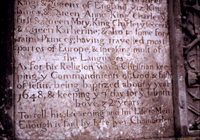 St. Margaret’s Chapel in Essex, England, contains the tombstone of Puritan Sabbath keeper Dr Peter Chamberlen, a respected, trusted, and much-loved physician to three sets of kings and queens in 17th century England.
St. Margaret’s Chapel in Essex, England, contains the tombstone of Puritan Sabbath keeper Dr Peter Chamberlen, a respected, trusted, and much-loved physician to three sets of kings and queens in 17th century England.
The inscription on the tombstone reads as follows:
“The said Peter Chamberlen took ye degree of Doctor in Physick, in fever all Universities born at home and abroad and lived such above three score years, being physician in ordinary to three Kings and Queens of England. viz. King James & Queen Anne; King Charles the first & Queen Mary; King Charles the second & Queen Katherine; & also tosome forraine Princes; having travelled most of partes of Europe and speaking most of the languages.
As for his religion, he was a Christian keeping the Commandments of God & faith of Jesus. being baptised about the year 1648, & keeping the 7th day for ye saboth above 32 years. To tell his Learning and his Life to Men: Enough is said by here lies Chamberlen.”
Alexander Ross, a traveller in the East during the seventeenth century, wrote that until his day, most of the Armenians believed that Christ rose from the dead on the Sabbath.[1] [1] Due to a lost Hebrew version of the Gospel of Matthew that supposedly mentions Jesus’s resurrection happening late in the Sabbath evening. See Blaine Neumann, A History of the Seventh-day Sabbath among Christians in Asia, Africa, Europe and North America (Gilette: Bible Sabbath Association, 2004), 6, 7, 11; See also Alexander Ross, Pansebia: A view of all Religions of the World (London: John Saywell & Co, 1655), 219.
18th Century Sabbath History
“It cannot be shown that Sunday has taken the place of the Sabbath (P.366). The Lord God has sanctified the last day of the week. Antichrist, on the other hand, has appointed the first day of the week.” Ki Auszug aus Tennhardt’s “Schriften,” P.49 (printed 1712)
Abyssinia
“The Jacobites assembled on the Sabbath day, before the Domical day, in the temple, and kept that day, as do also the Abyssinians, as we have seen from the confession of their faith by the Ethiopian king Claudius.” Abundançus, ‘Historia Jacobatarum’, pp.118-9 (18th Century)
Romania, 1760 (and what is today) Yugoslavia, Czechoslovakia
“Joseph II’s edict of tolerance did not apply to the Sabbatarians, some of whom again lost all of their possessions.” Jahrgang 2, 254
“Catholic priests aided by soldiers forcing them to accept Romanism nominally, and compelling the remainder to labour on the Sabbath and to attend church on Sunday,-these were the methods employed for two hundred fifty years to turn the Sabbatarians.
Germany-Tennhardt of Nuremberg
“He holds strictly to the doctrine of the Sabbath, because it is one of the ten commandments.” Bengel’s “Leben und Wirken,” Burk, p.579
He himself says: “It cannot be shown that Sunday has taken the place of the Sabbath (P.366). The Lord God has sanctified the last day of the week. Antichrist, on the other hand, has appointed the first day of the week.” Ki Auszug aus Tennhardt’s “Schriften,” P.49 (printed 1712)
Bohemia and Moravia (today – the Czech Republic)
Their history from 1635 to 1867 is thus described by Adolf Dux: “The condition of the Sabbatarians was dreadful. Their books and writings had to be delivered to the Karlsburg Consistory to become the spoils of flames.” Aus Ungarn, pp. 289-291. Leipzig, 1850
Holland and Germany
“Dr. Cornelius stated of East Friesland, that when Baptists were numerous, “Sunday and holidays were not observed,” (they were Sabbath-keepers). Der Anteil Ostfrieslands und Ref. Muenster,” 1852, pp l29, 34
Moravia-Count Zinzendorf
In 1738, Zinzendorf wrote of his keeping the Sabbath thus: “That I have employed the Sabbath for rest many years already, and our Sunday for the proclamation of the gospel.” Budingsche Sammlung, Sec. 8, p. 224. Leipzig, 1742
America – 1741
-Moravian Brethren (after Zinzendorf arrived from Europe). “As a special instance, it deserves to be noticed that he is resolved with the church at Bethlehem to observe the seventh day as a rest day. Id., pp. 5, 1421, 1422
America
However, before Zinzendorf and the Moravians at Bethlehem initiated the observance of the Sabbath and prospered, a small group of German Sabbath-keepers had already established themselves in Pennsylvania. See Rupp’s “History of Religious Denominations in the United States,” pp.109- 123
Referring to the separation of the Greek Church from the Latin in 1054, Church Historian Philipp Schaff wrote in the late nineteenth century: “The observance of Sabbath among Jewish Christians gradually ceased; yet the Eastern Church to this day marks the seventh day of the week by omitting fasting, and standing in prayer.”[1] [1] Philipp Schaff, History of the Church, vol. 4 (Grand Rapids: Eerdmans, 1952, (first ed. 1864), 205.
Subbotniki During the reign of Catherine II, also known as Catherine the Great (1729-1796), Sabbath-keeping groups called Subbotniki (Russian: Субботники, lit. “Sabbatarians”) reappeared in Russia.[1] Dr Samuel Kohn, chief Rabbi of Budapest (Hungary) provided this information about Christians who kept the Sabbath in Russia and other Eastern European countries in the early 1500s. “Sabbatarians (Subotniki), or Judaizers also arose soon thereafter in Silesia, Poland and Russia; in the latter, where frequently confused with the Jews in the second half of this century, they remain until today.”[1] According to the notes of various travellers to the East and official reports of the Imperial Russian government, most of the Subotnikis were Unitarian, accepted only the Jewish Bible and observed the Sabbath on Saturday instead of on Sunday. According to the same source, however, some of them, as, for instance, the Subbotniks of Moscow, did not circumcise and believed in Jesus, regarding him as a saint and prophet rather than as the Son of God. Other groups reportedly awaited the coming of the Messiah as king of the earth, in line with Judaism’s view. Some reportedly revered the New Testament, while others placed it on a lower level than the Old Testament.[2] It is impossible to determine the exact number of Subbotniks in Russia at any given time. The discrepancies between government statistics and the actual membership varied widely. Official data from czarist times placed the membership of the sect at several thousand, while the traveller and writer E. Dinard, who was in personal contact with the Subbotniks, stated that there were 2,500,000. It may be that Dinard included in his figures all of the Judaizing Christian and Jewish groups, and not just the Subbotniks. Regarding dress and lifestyle, apart from their religious rites, the Subbotniks were indistinguishable from the Russian Orthodox or secular Russians.[1] [1] Tamar Davis, 101-2. [1] Samuel Kohn, Die Sabbatharier in Siebenburgen; Ihre Geschichte, Literatur und Dogmatik (Budapest, Hungary: Verlag von Singer & Wolfer, 1894), 8. [2] Samuel Hurwitz, “Subbotniki.”in Jewish Encyclopedia, vol. 11 (New York: MacMillan, 1906), 577-78. [1] Ernest Dinard, “Subbotniki” in Ha-Meliẓ, (Russian Hebrew Paper) 1887, No. 75.
19th Century Sabbath History
“But the majority moved to the Crimea and the Caucasus, where they remain true to their doctrine in spite of persecution until this present time. The people call them Subotniki, or Sabbatarians”, Sternberg, “Geschichte der Juden in Polen,” p.124
China
“At this time Hung prohibited the use of opium, and even tobacco, and all intoxicating drinks, and the Sabbath was religiously observed.” The Ti-Ping Revolution,” by Llin-Le, and officer among them, Vol. 1, pp.36-48, 84
“The seventh day is most religiously and strictly observed. The Taiping Sabbath is kept upon our Saturday.” P. 319
“The Taipings, when asked why they observed the seventh-day Sabbath, replied that it was, first, because the Bible taught it, and, second, because their ancestors observed it as a day of worship.” A Critical History of the Sabbath and the Sunday.
India and Persia
“Besides, they maintain the solemn observance of Christian worship throughout our Empire, on the seventh day.” Christian Research in Asia,” p.143
Denmark
“This agitation was not without its effect. Pastor M.A. Sommer began observing the seventh day and wrote in his church paper. “Indovet Kristendom” No.5,1875 an impressive article about the true Sabbath. In a letter to Elder John G.Matteson, he says:
“Among the Baptists here in Denmark, there is a great agitation regarding the Sabbath commandment..However, I am probably the only preacher in Denmark who stands so near to the Adventists and who for many years has proclaimed Christ’s second coming.” Advent Tidente,” May, 1875
Russia
“But the majority moved to the Crimea and the Caucasus, where they remain true to their doctrine in spite of persecution until this present time. The people call them Subotniki, or Sabbatarians,” Sternberg, “Geschichte der Juden in Polen,” p.124
Sweden (Baptists)
“We will now endeavour to show that the sanctification of the Sabbath has its foundation and its origin in a law which God at creation itself established for the whole world, and as a consequence thereof is binding on all men in all ages.” Evangelisten (The Evangelist). Stockholm, May 30 to August 15, 1863 (Swedish Baptist Church)
America – 1845
“Thus we see Dan. 7, 25, fulfilled, the little horn changing ‘times and laws. ‘Therefore, it appears to me that all who keep the first day for the Sabbath are Pope’s Sunday-keepers and God’s Sabbath-breakers.” Elder T.M. Preble, Feb.13, 1845
America (Seventh-day Adventists)
In 1844, Seventh-day Adventists arose and had spread to nearly all the world by the close of the 19th Century. Their name is derived from their teaching of the seventh-day Sabbath and the Advent of Jesus. In 1874, their work was established in Europe, 1885 -Australasia, 1887-South Africa, 1888-Asia, 1888-South America. Seventh-day Adventists uphold the same Sabbath that Jesus and His followers kept. The sacred Torch of Truth was not extinguished through the long centuries. Adventists are working today in nearly 1000 languages of the earth and have over 27,000 churches. Over ten million members around the globe welcome the sacred Sabbath hours.
20th Century Sabbath History
Baptist Convention
“The first four commandments set forth man’s obligations directly toward God…. But when we keep the first four commandments, we are likely to keep the other six. . . . The fourth commandment sets forth God’s claim on man’s time and thought…. The six days of labour and the rest on the Sabbath are to be maintained as a witness to God’s toil and rest in the creation. . . . No one of the ten words is of merely racial significance…. The Sabbath was established originally (long before Moses) in no special connection with the Hebrews, but as an institution for all mankind, in commemoration of God’s rest after the six days of creation. It was designed for all the descendants of Adam.” -Adult Quarterly, Southern Baptist Convention series, Aug. 15, 1937.
Roman Catholic
“It is well to remind the Presbyterians, Baptists, Methodists, and all other Christians, that the Bible does not support them anywhere in their observance of Sunday. Sunday is an institution of the Roman Catholic Church, and those who observe the day observe a commandment of the Catholic Church.” Priest Brady, in an address, reported in the Elizabeth, NJ ‘News’ on March 18, 1903.
“The Church, on the other hand, after changing the day of rest from the Jewish Sabbath, or seventh day of the week, to the first, made the Third Commandment refer to Sunday as the day to be kept holy as the Lord’s Day. The Council of Trent (Sess. VI, can. xix) condemns those who deny that the Ten Commandments are binding on Christians.” The Catholic Encyclopedia, Commandments of God, Volume IV, © 1908 by Robert Appleton Company – Online Edition © 1999 by Kevin Knight, Nihil Obstat – Remy Lafort, Censor Imprimatur – +John M. Farley, Archbishop of New York, page 153.
‘Deny the authority of the Church and you have no adequate or reasonable explanation or justification for the substitution of Sunday for Saturday in the Third – Protestant Fourth – Commandment of God… The Church is above the Bible, and this transference of Sabbath observance is proof of that fact.” Catholic Record, September 1, 1923.
“If Protestants would follow the Bible, they would worship God on the Sabbath Day. In keeping the Sunday, they are following a law of the Catholic Church.” Albert Smith, Chancellor of the Archdiocese of Baltimore, replying for the Cardinal, in a letter dated February 10, 1920.
Episcopal
“The Bible commandment says on the seventh-day thou shalt rest. That is Saturday. Nowhere in the Bible is it laid down that worship should be done on Sunday.” Phillip Carrington, quoted in Toronto Daily Star, Oct 26, 1949 [Carrington (1892-), Anglican archbishop of Quebec, spoke the above in a message on this subject delivered to a packed assembly of clergymen. It was widely reported at the time in the news media.
Lutheran
“We have seen how gradually the impression of the Jewish Sabbath faded from the mind of the Christian church, and how completely the newer thought underlying the observance of the first day took possession of the church. We have seen that the Christians of the first three centuries never confused one with the other, but for a time celebrated both.” The Sunday Problem, a study book by the Lutheran Church (1923), p.36
Church of Christ
“But we do not find any direct command from God, or instruction from the risen Christ, or admonition from the early apostles, that the first day is to be substituted for the seventh day Sabbath.” “Let us be clear on this point. Though to the Christian, that day, the first day of the week, is the most memorable of all days … there is no command or warrant in the New Testament for observing it as a holy day.” “The Roman Church selected the first day of the week in honour of the resurrection of Christ. …” Bible Standard, May, 1916, Auckland, New Zealand.
Church of England
“Nowhere in the Bible is it laid down that worship should be done on Sunday. Remember the Sabbath day to keep it holy. …! That is Saturday.” P. Carrington, Archbishop of Quebec, Oct. 27, 1949.
Smithsonian Institute
“The evaluation of Sunday, the traditionally accepted day of the resurrection of Christ, has varied greatly throughout the centuries of the Christian Era. From time to time, it has been confused with the seventh day of the week, the Sabbath. English speaking peoples have been the most consistent in perpetuating the erroneous assumption that the obligation of the fourth commandment has passed over to Sunday. In popular speech, Sunday is frequently, but erroneously, spoken of as the Sabbath.” -F. M. SETZLER, Head Curator, Department of Anthropology, Smithsonian Institute, from a letter dated Sept. 1, 1949.
REFERENCE: SABBATH TRUTH WEBSITE
